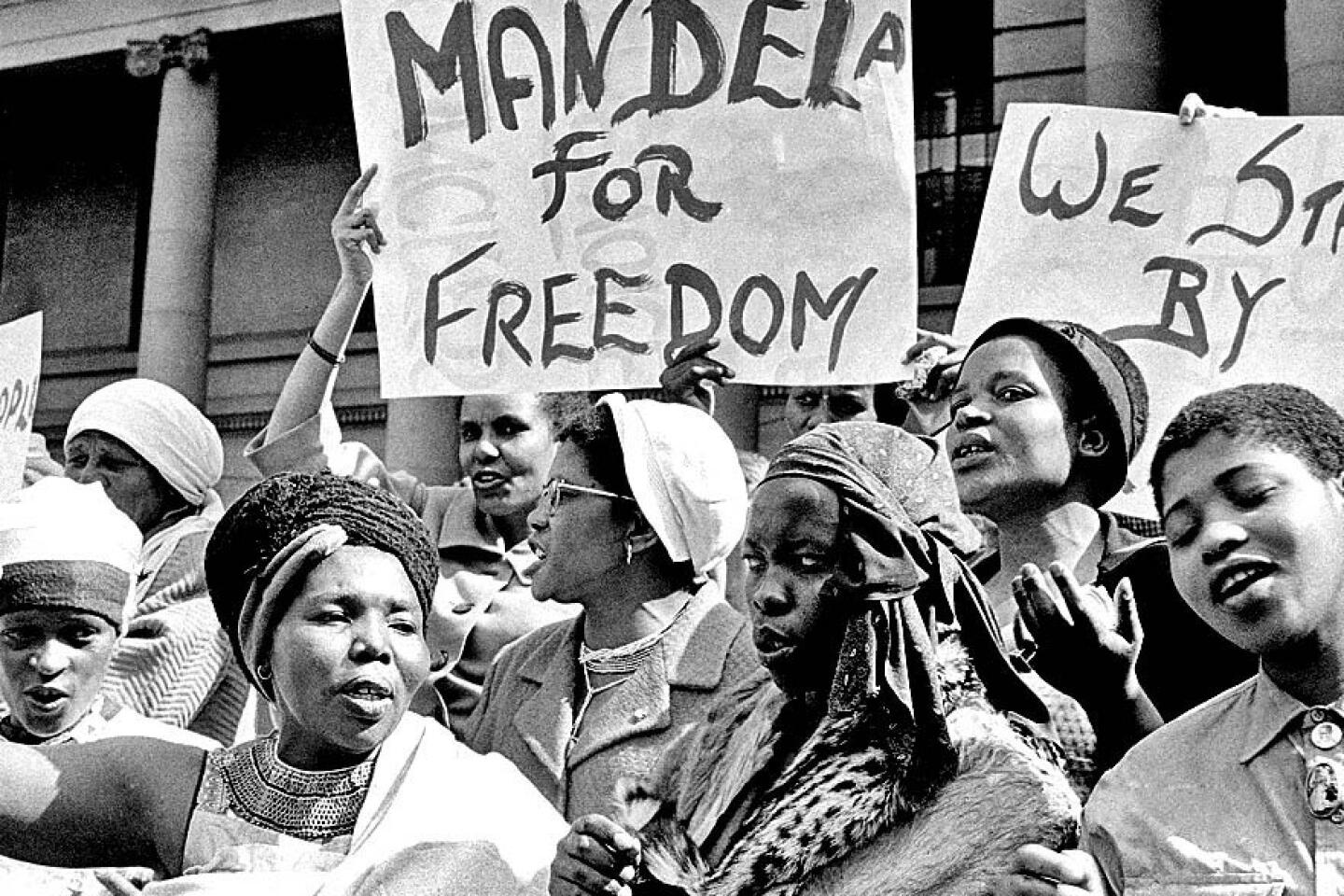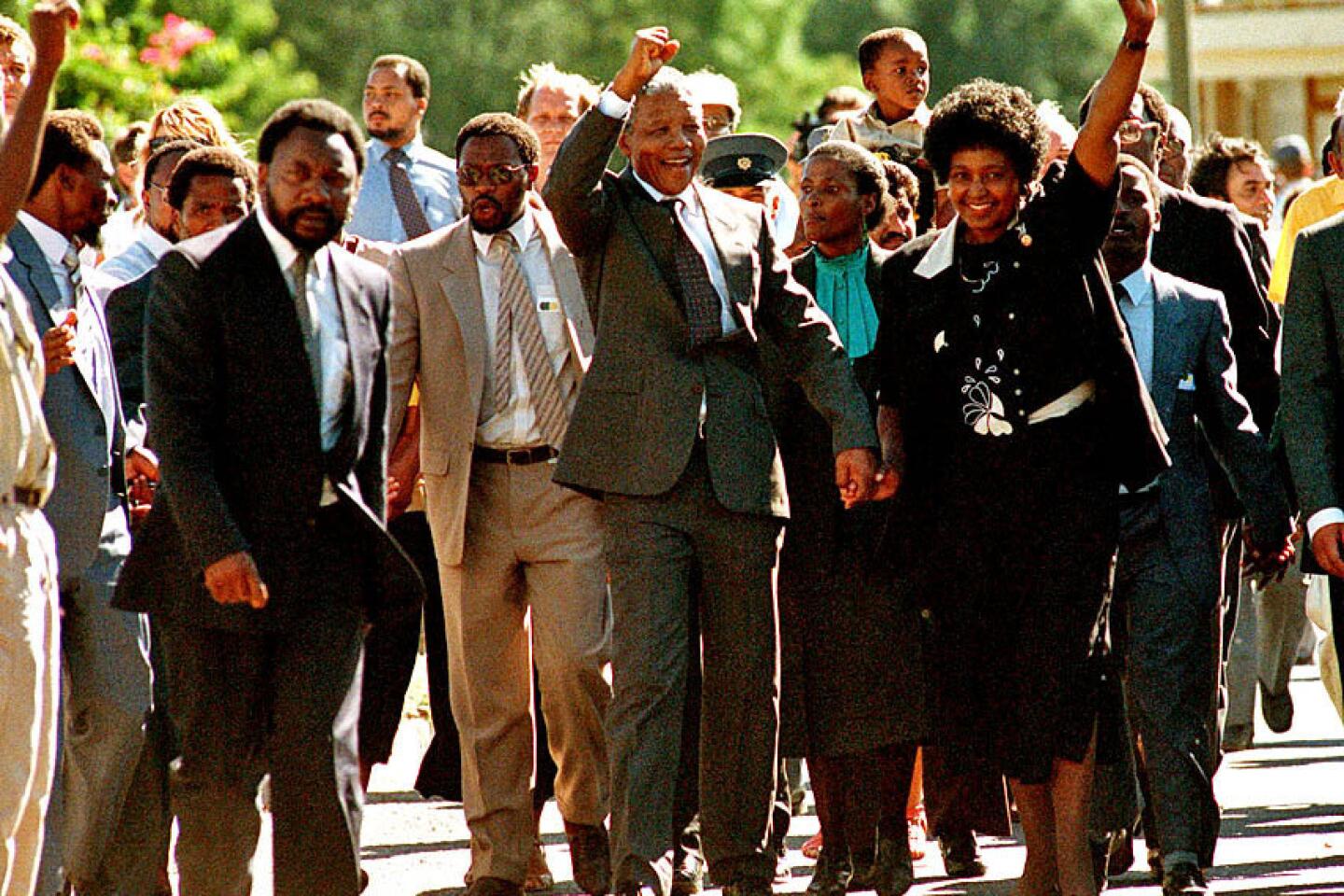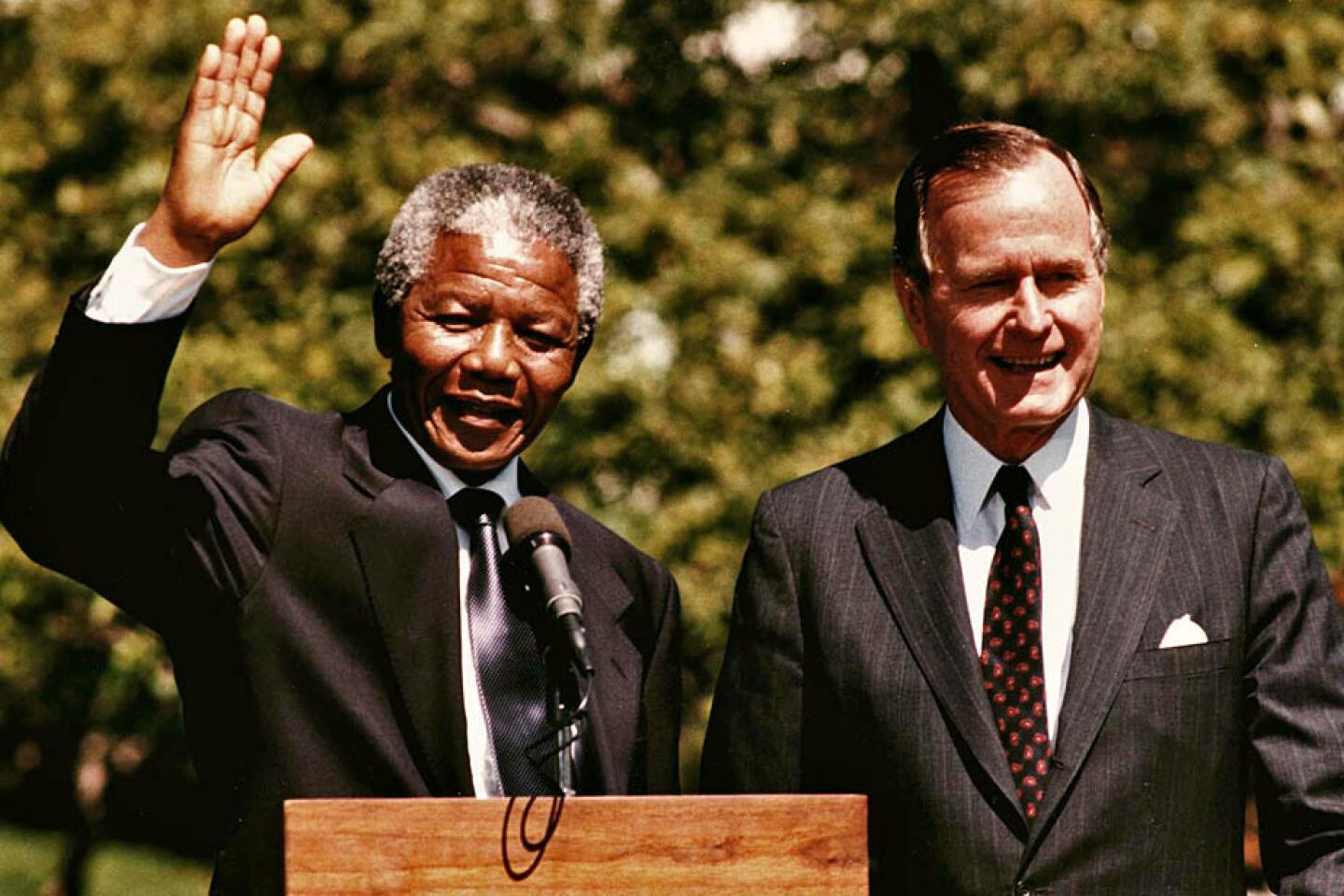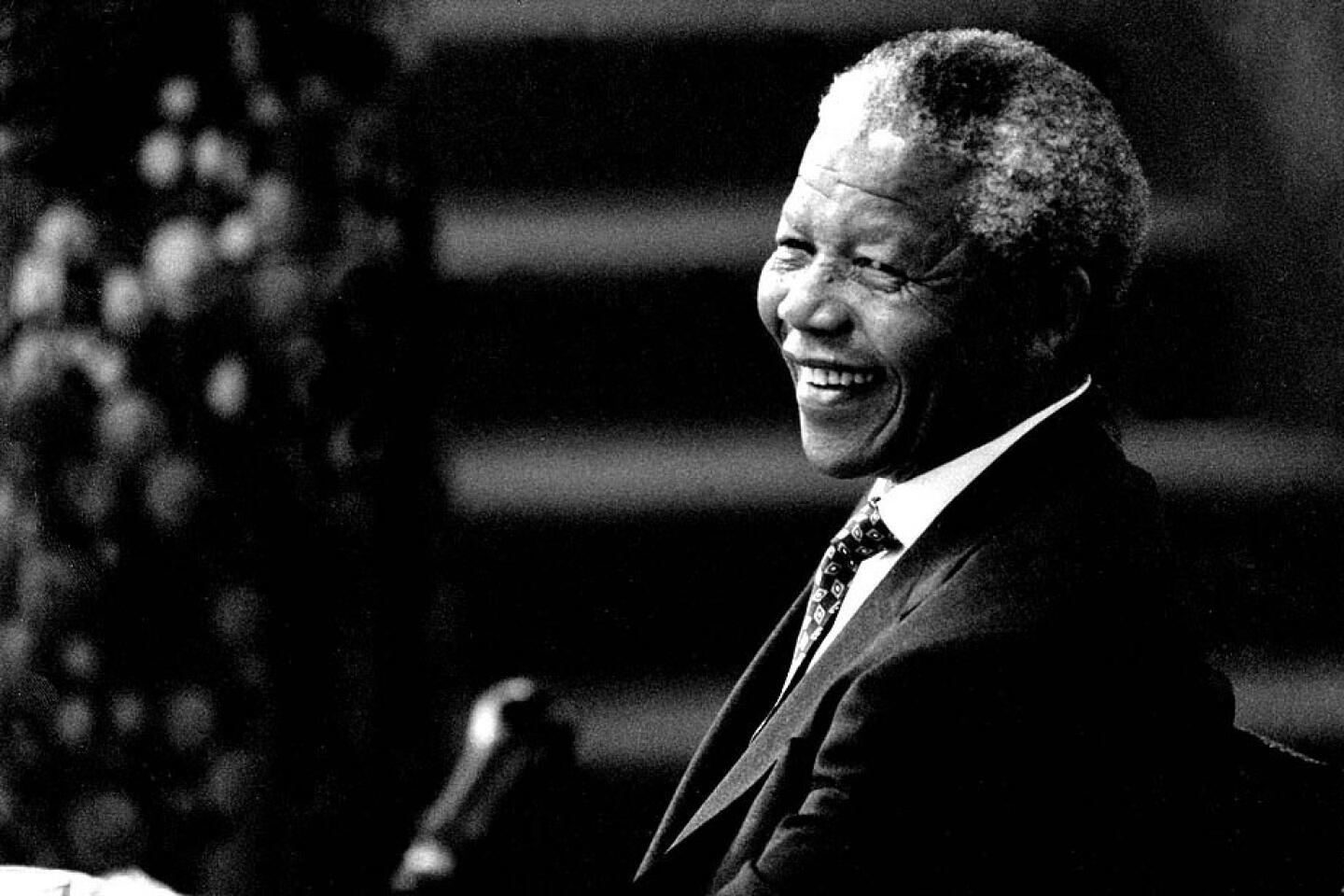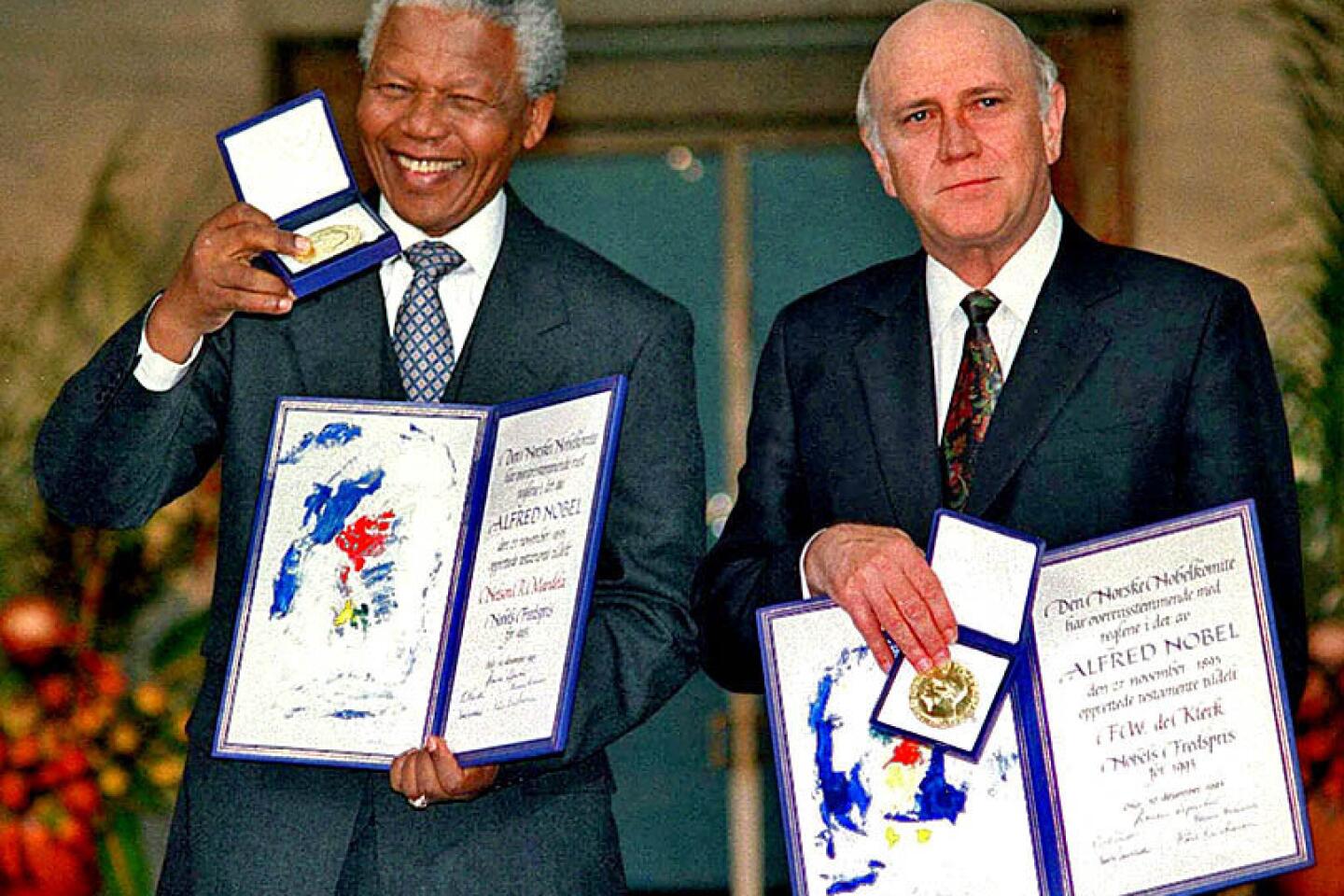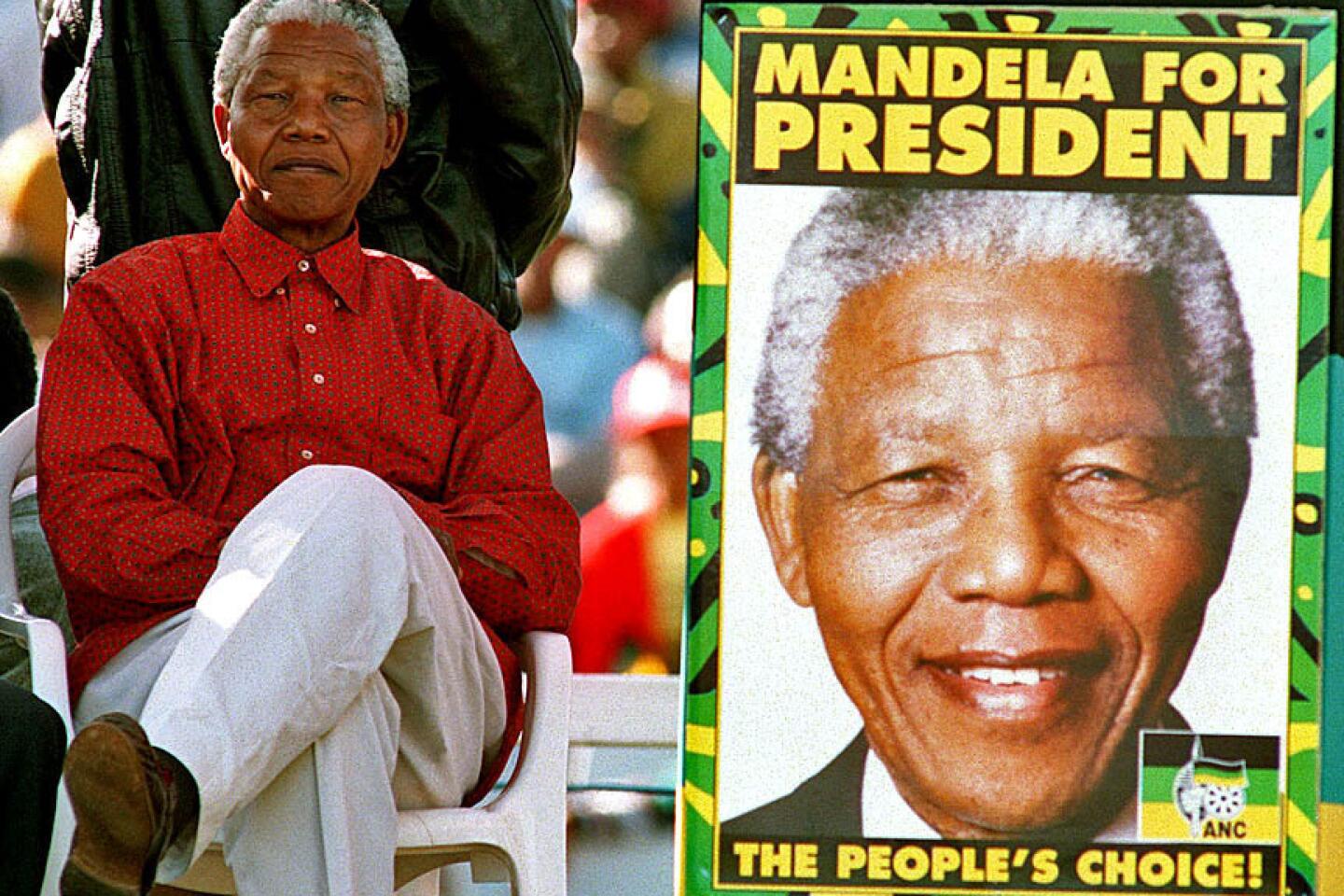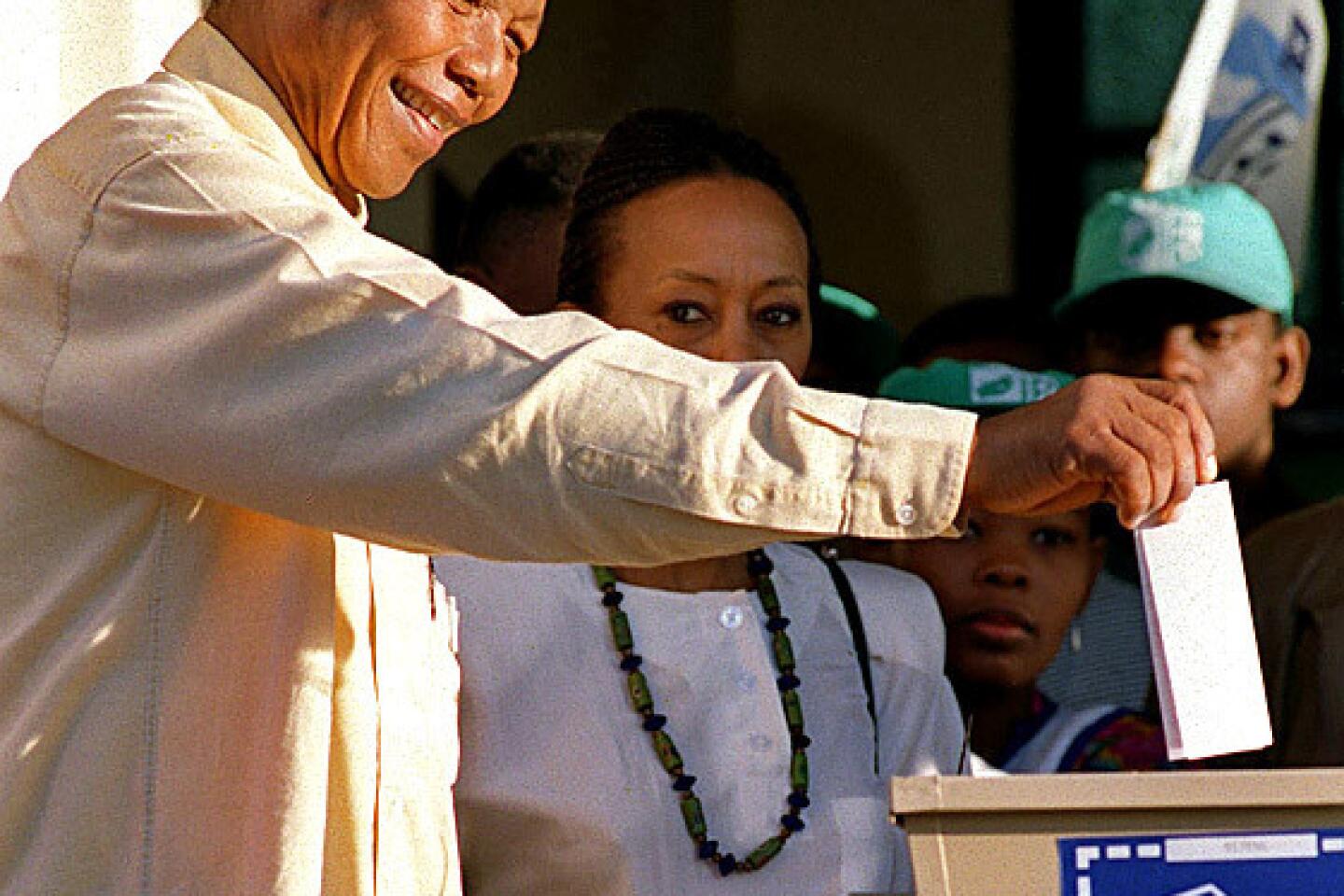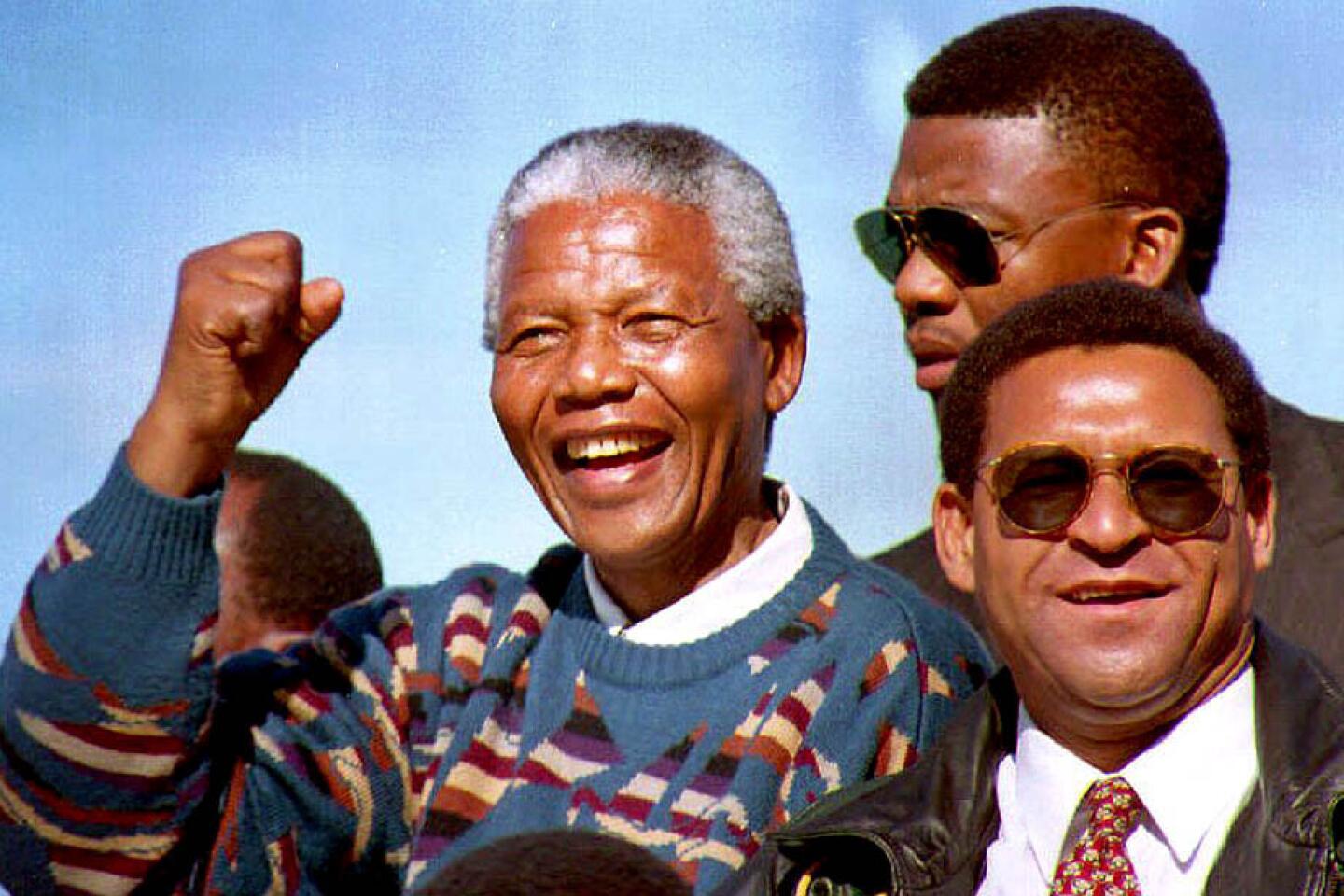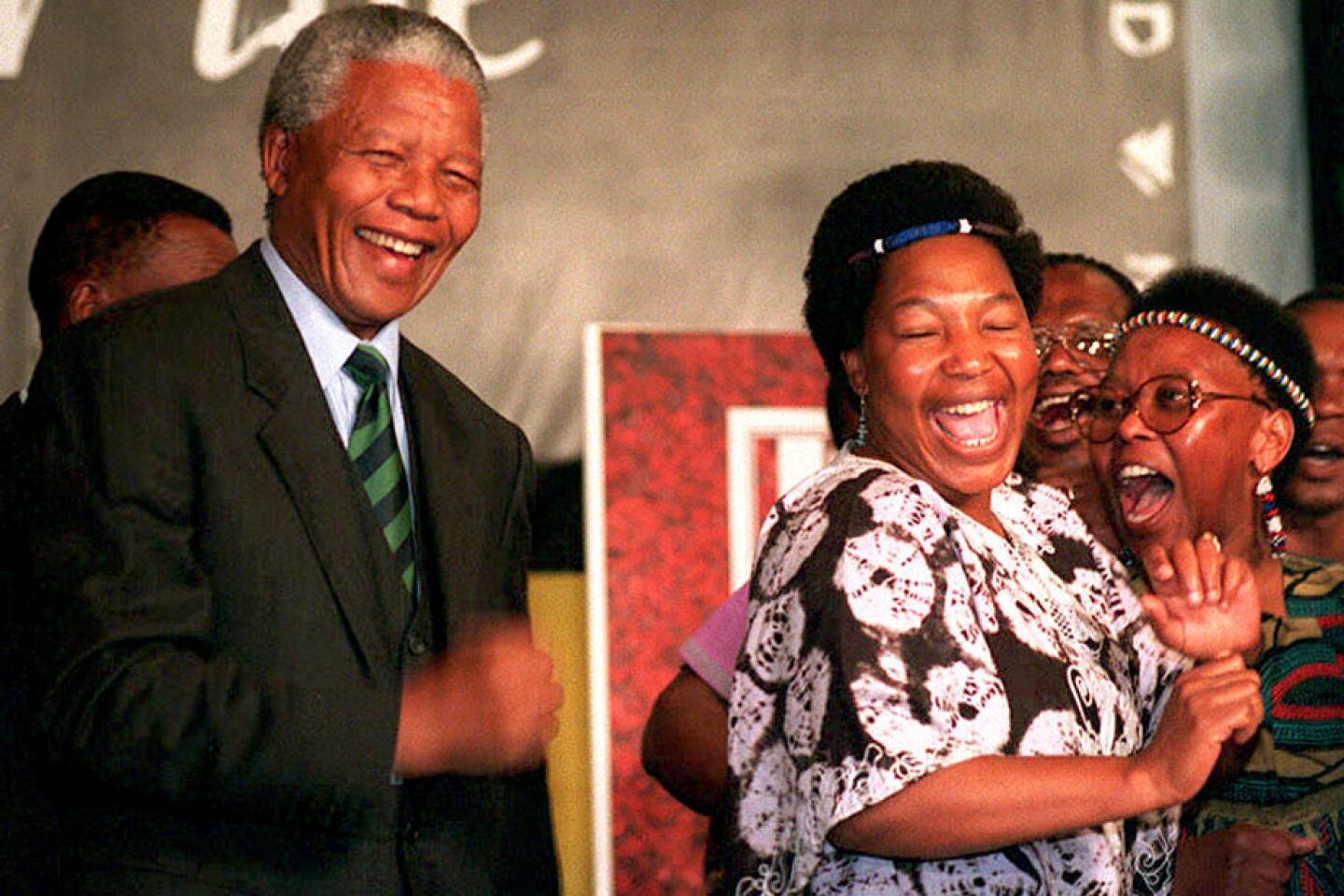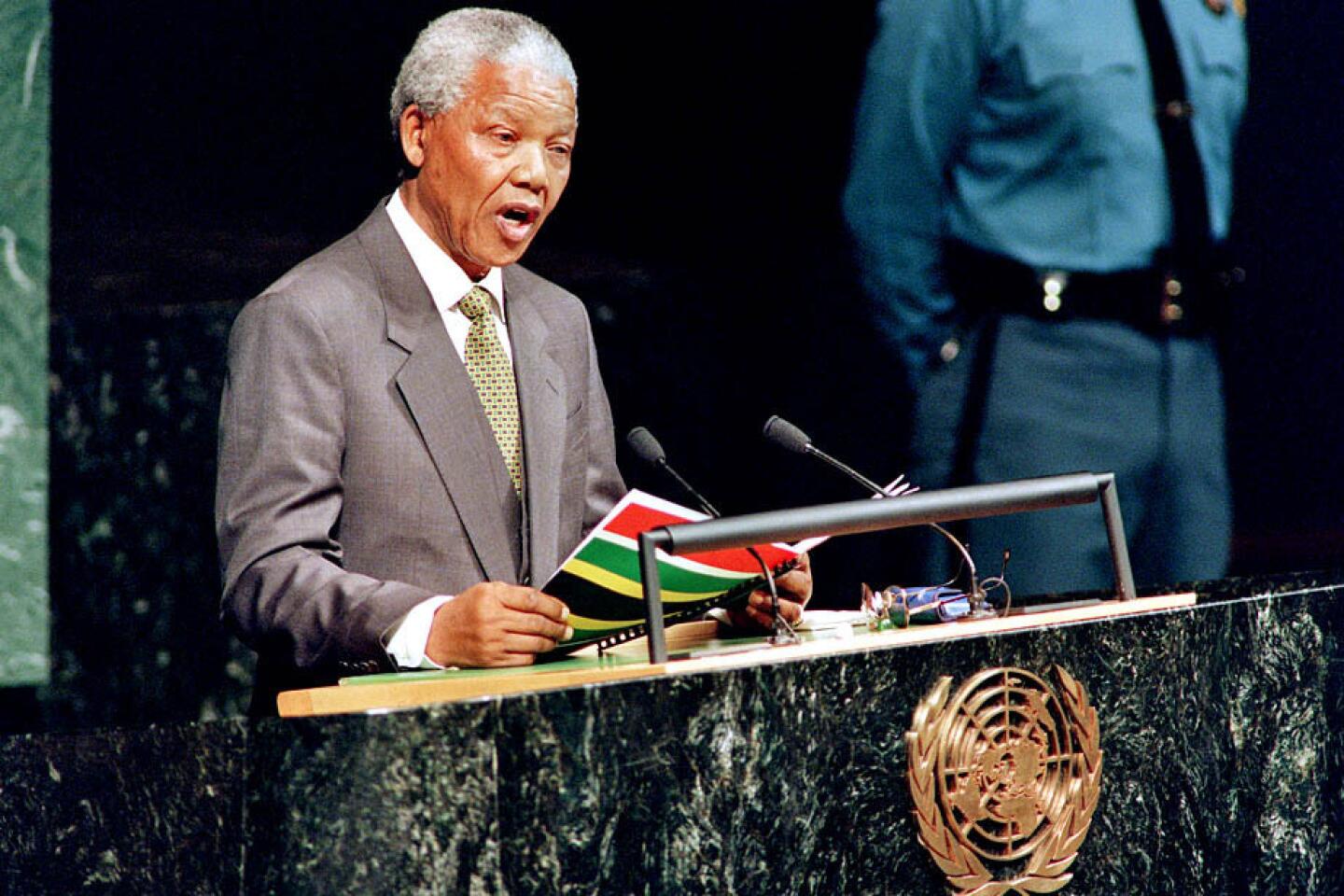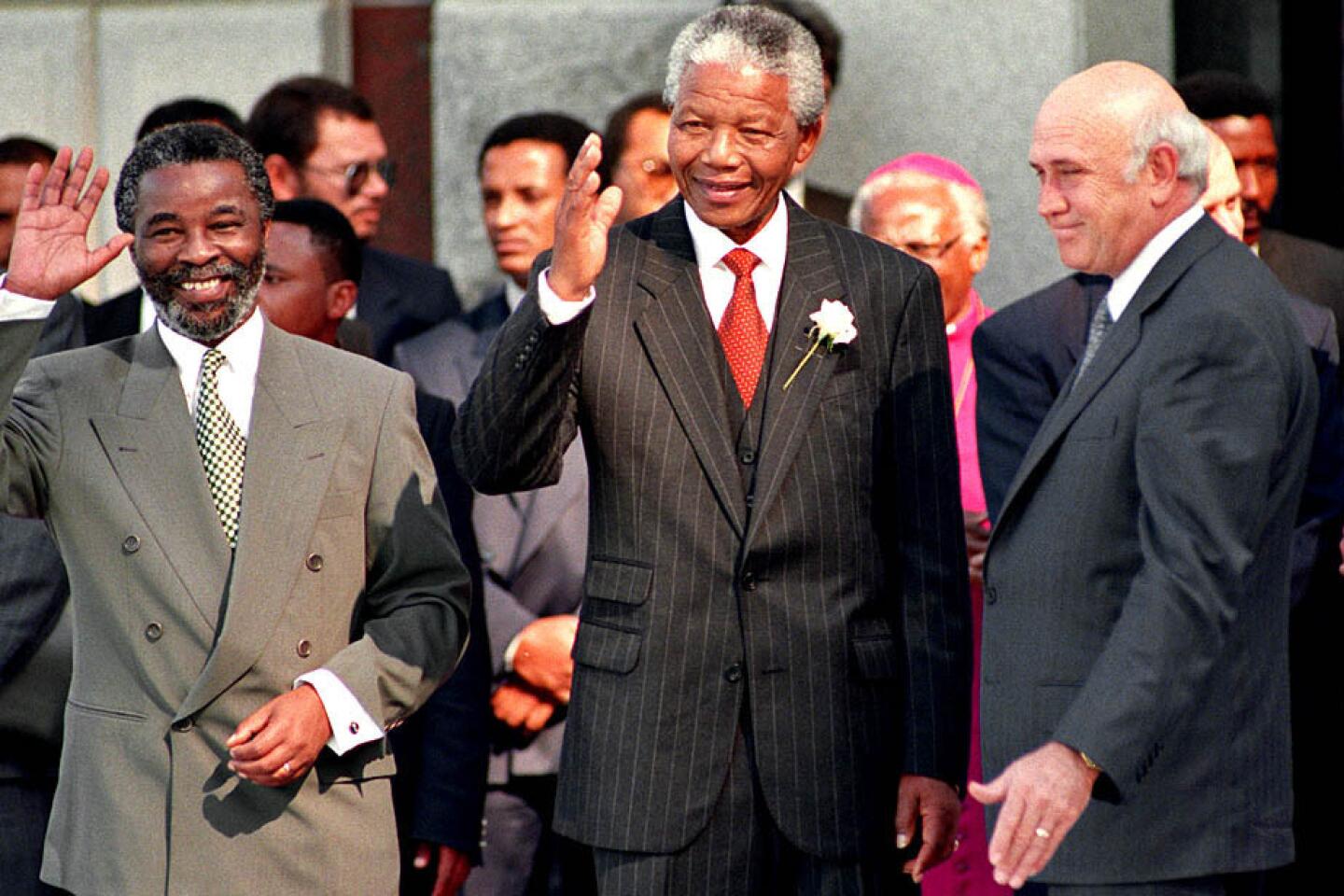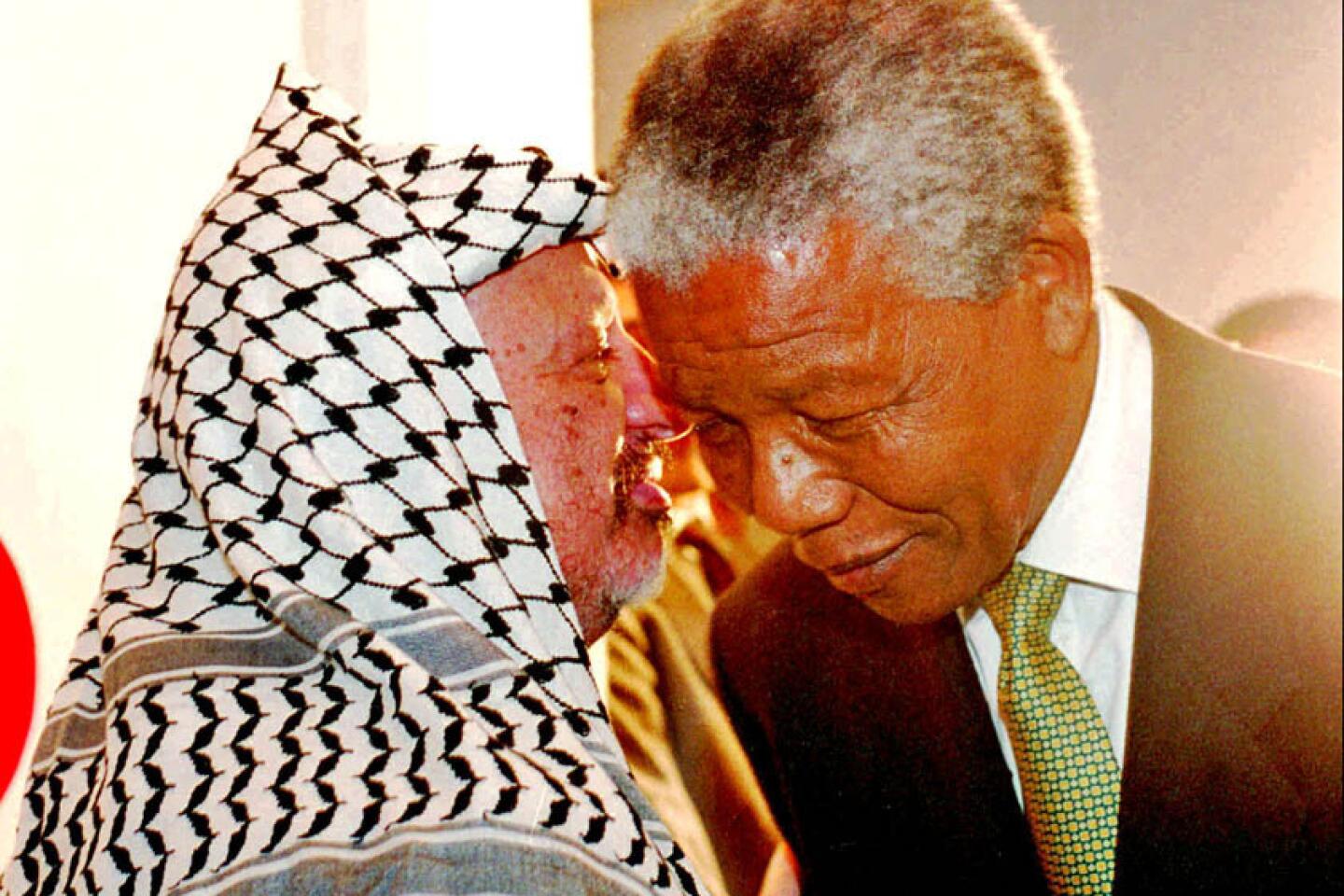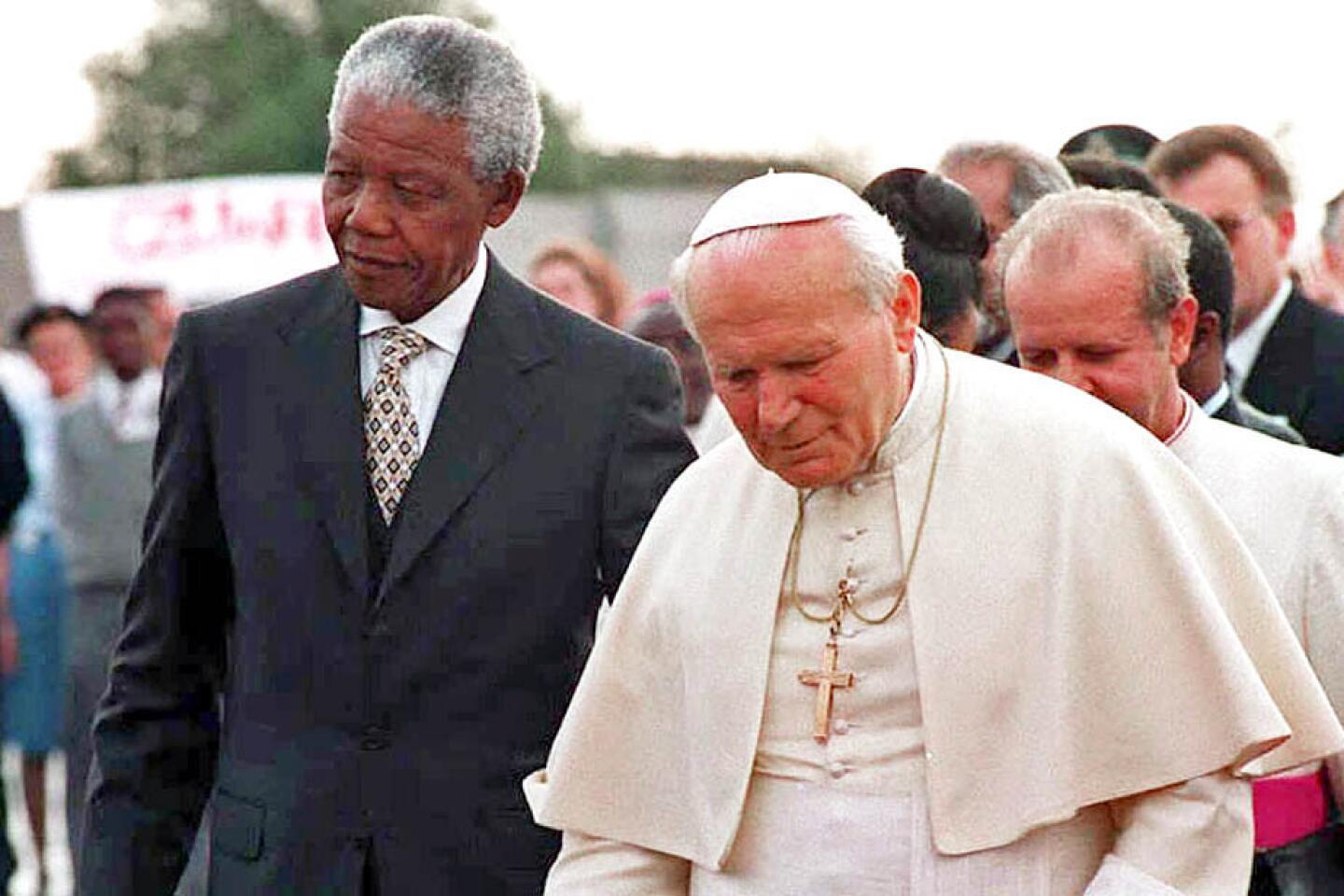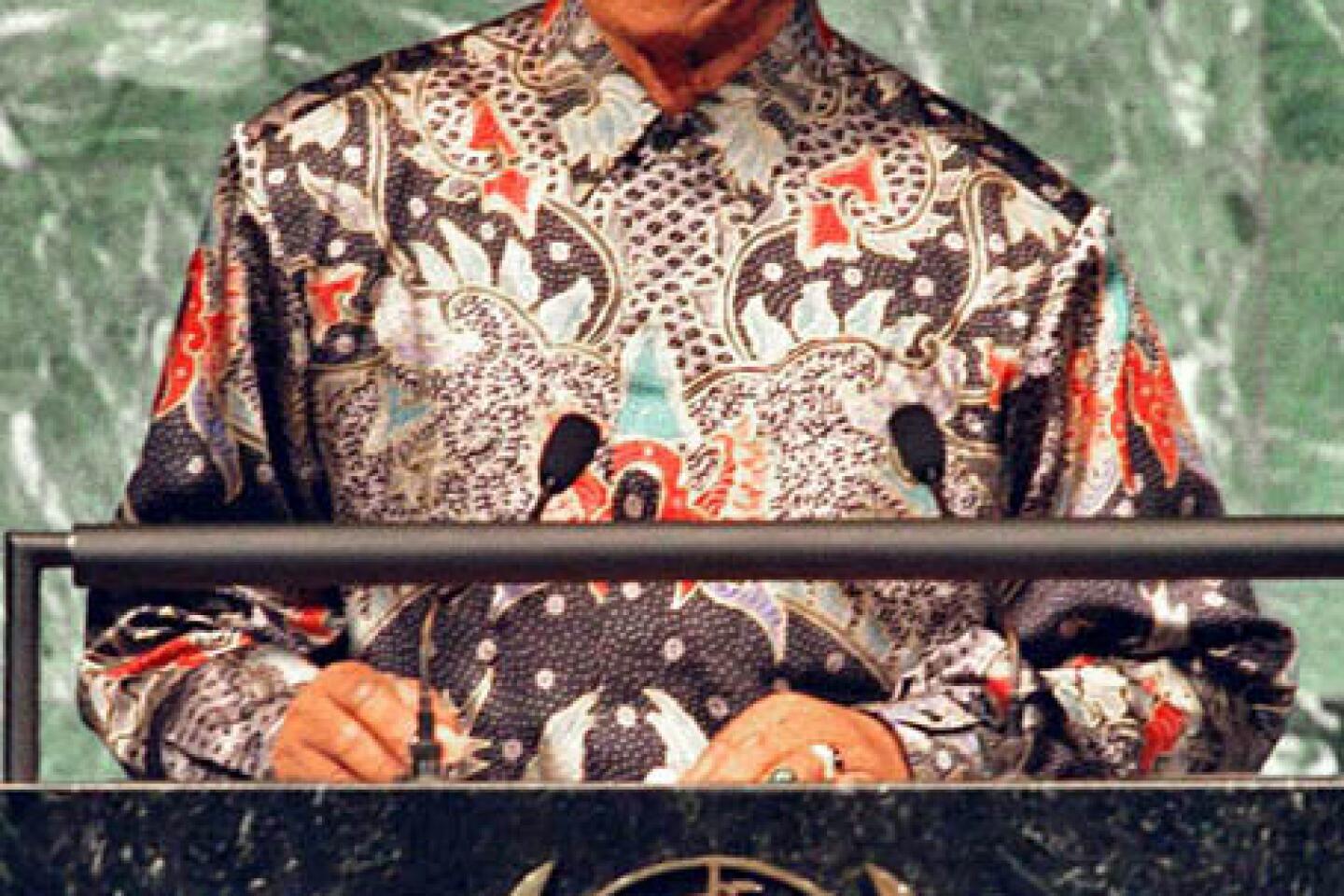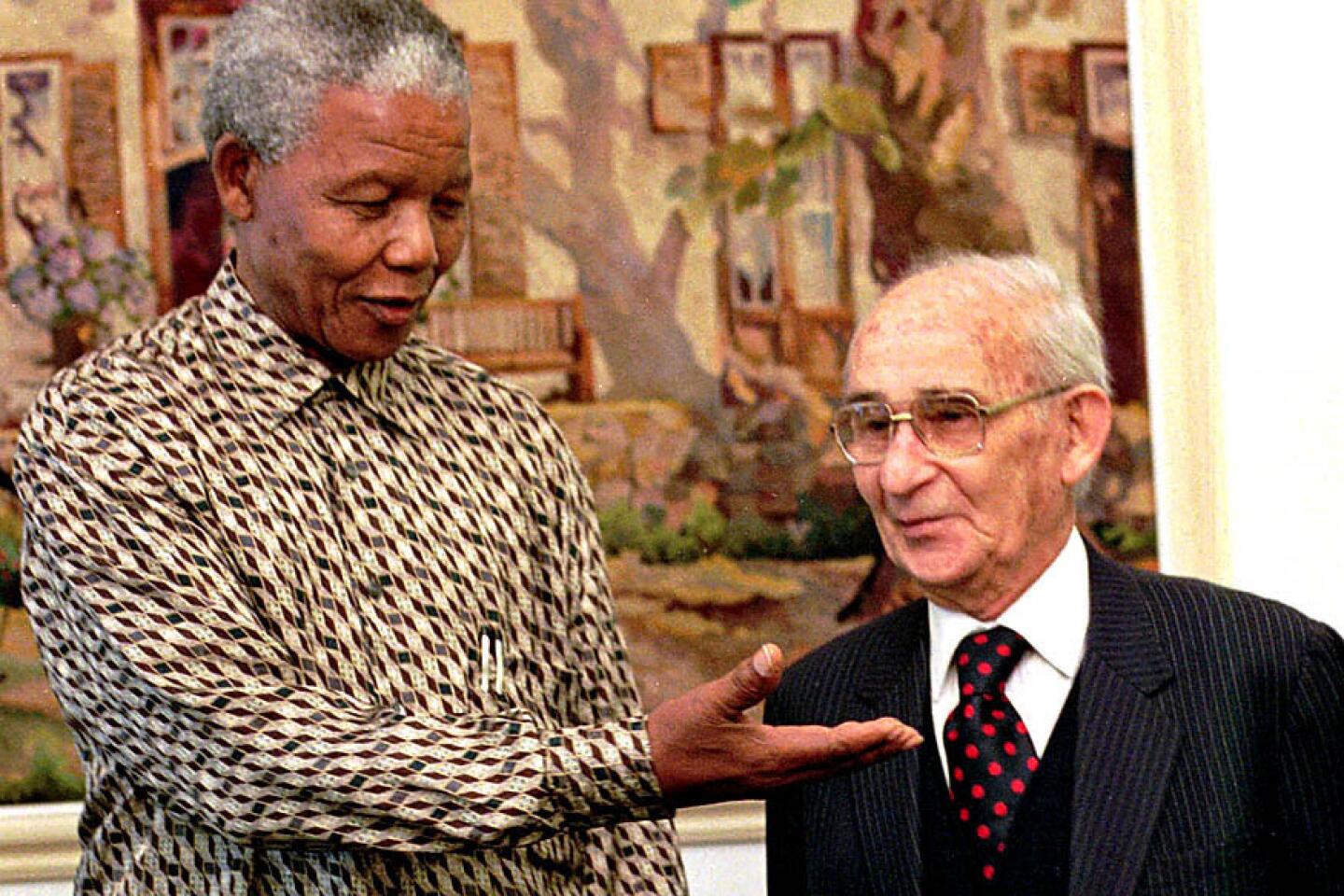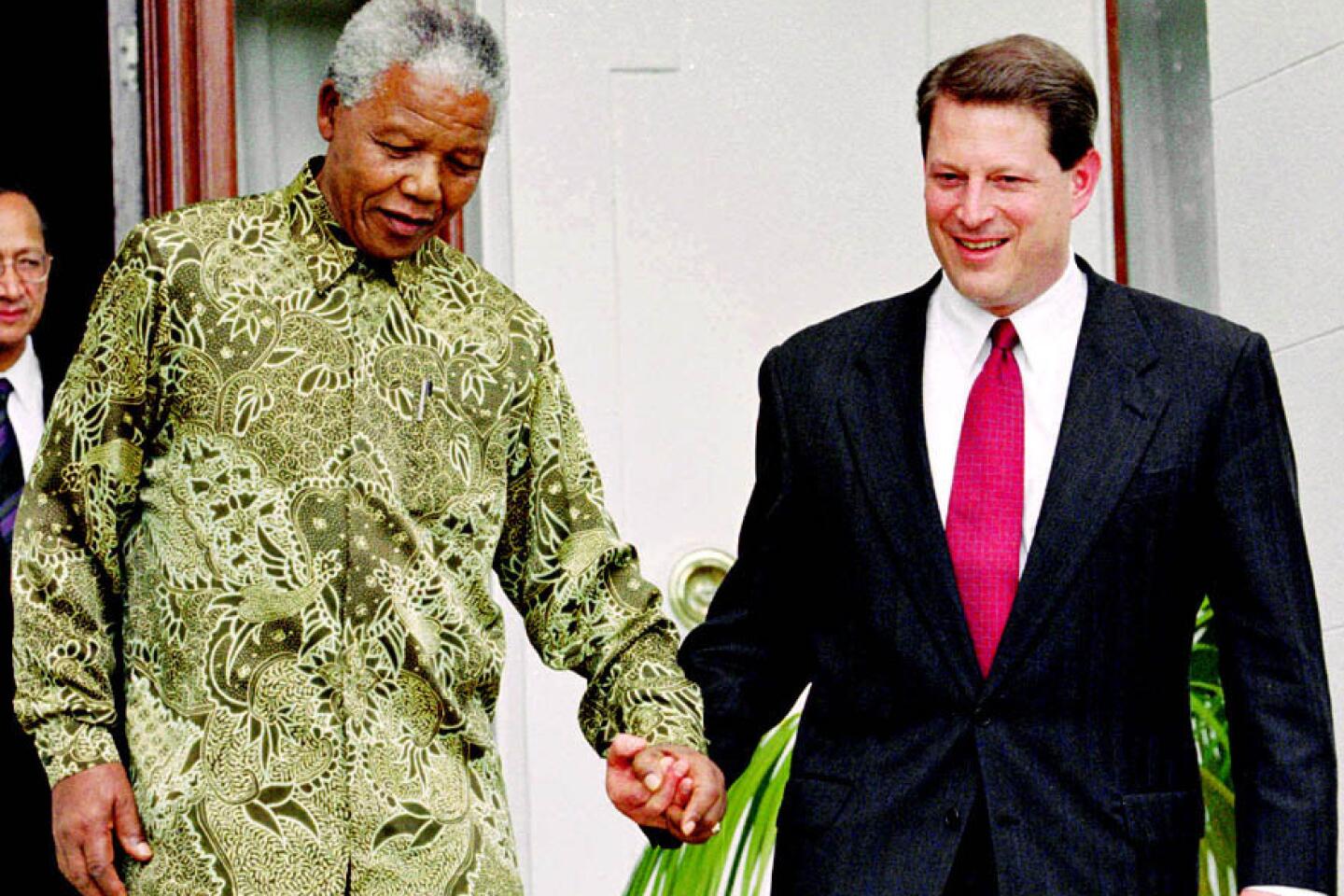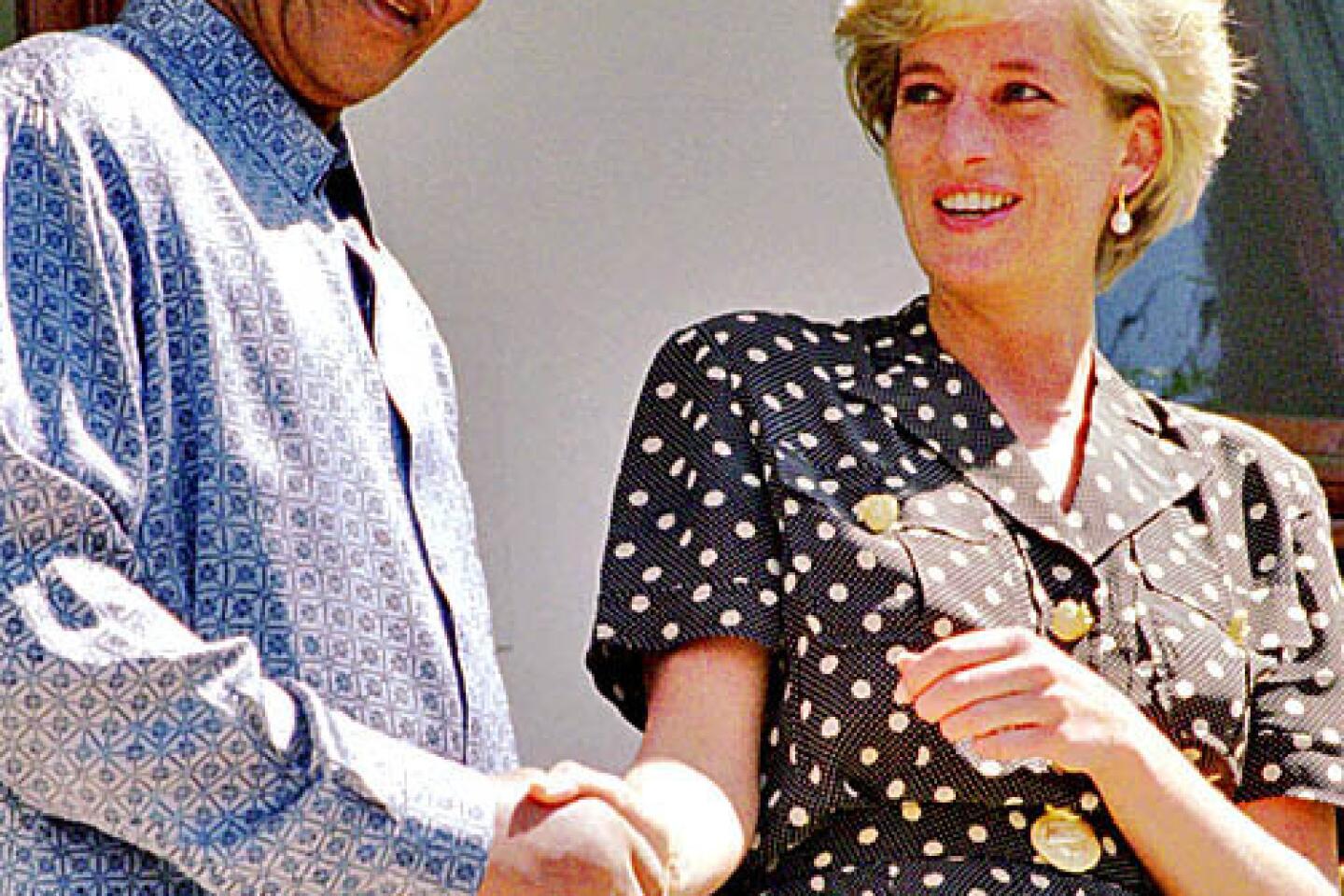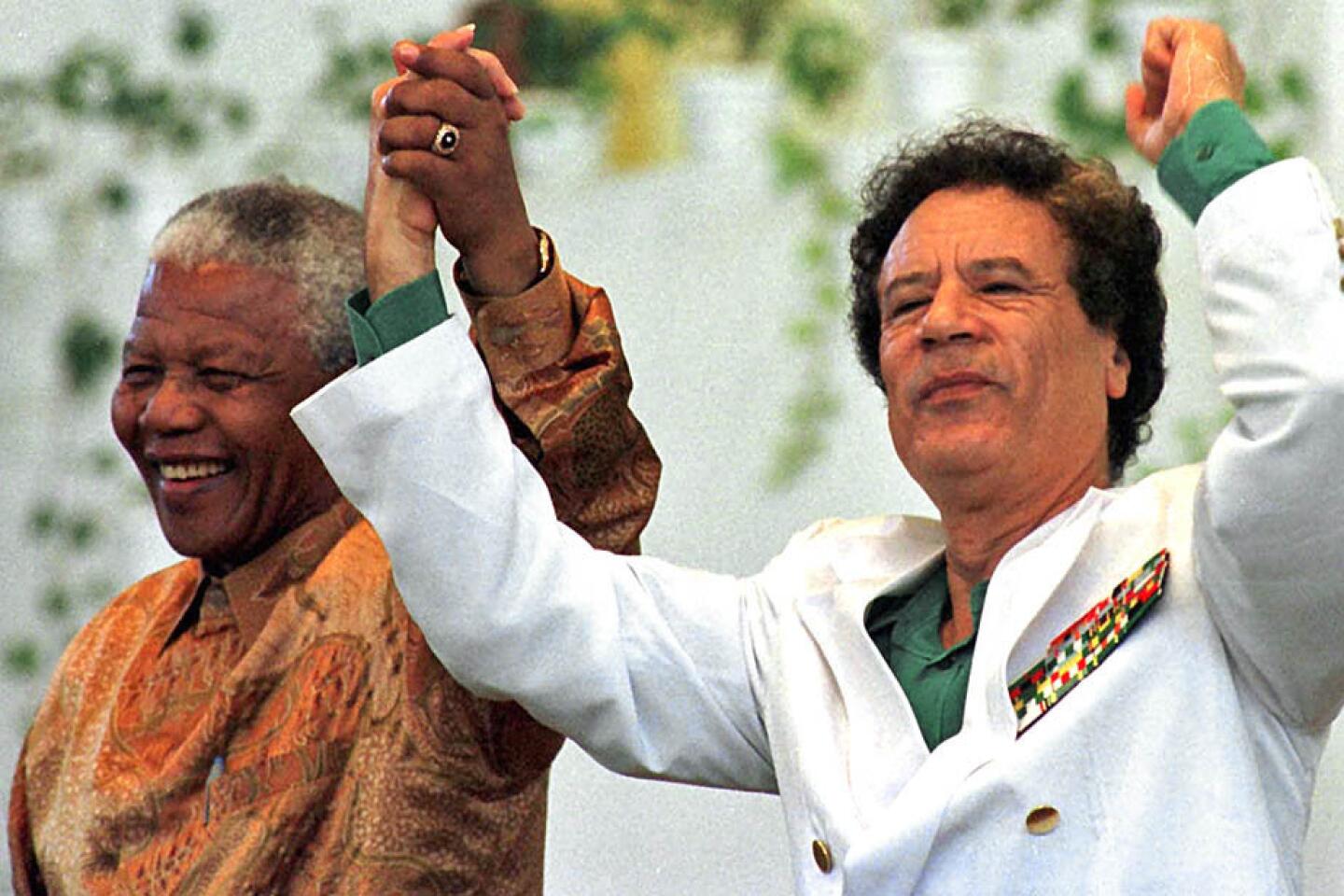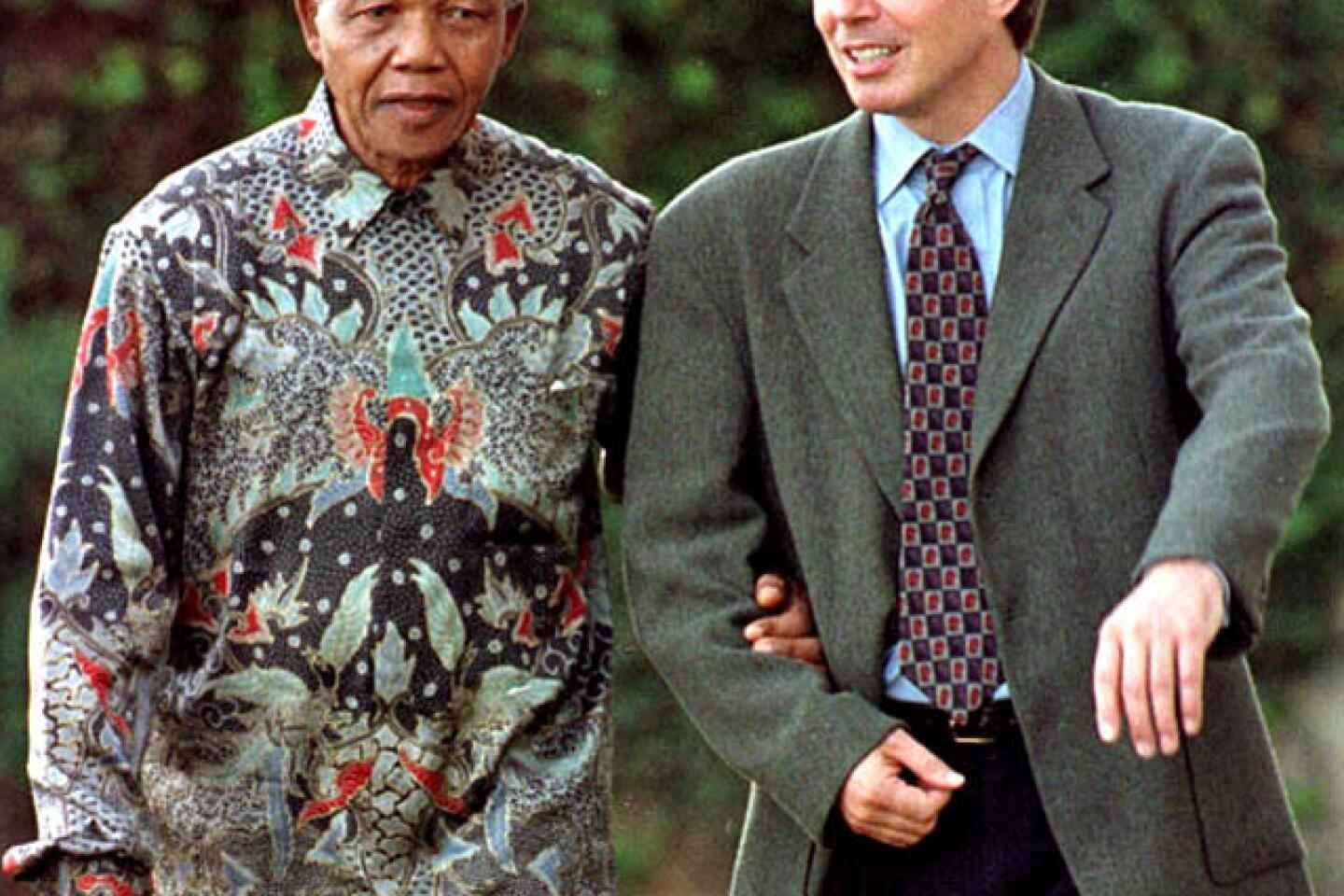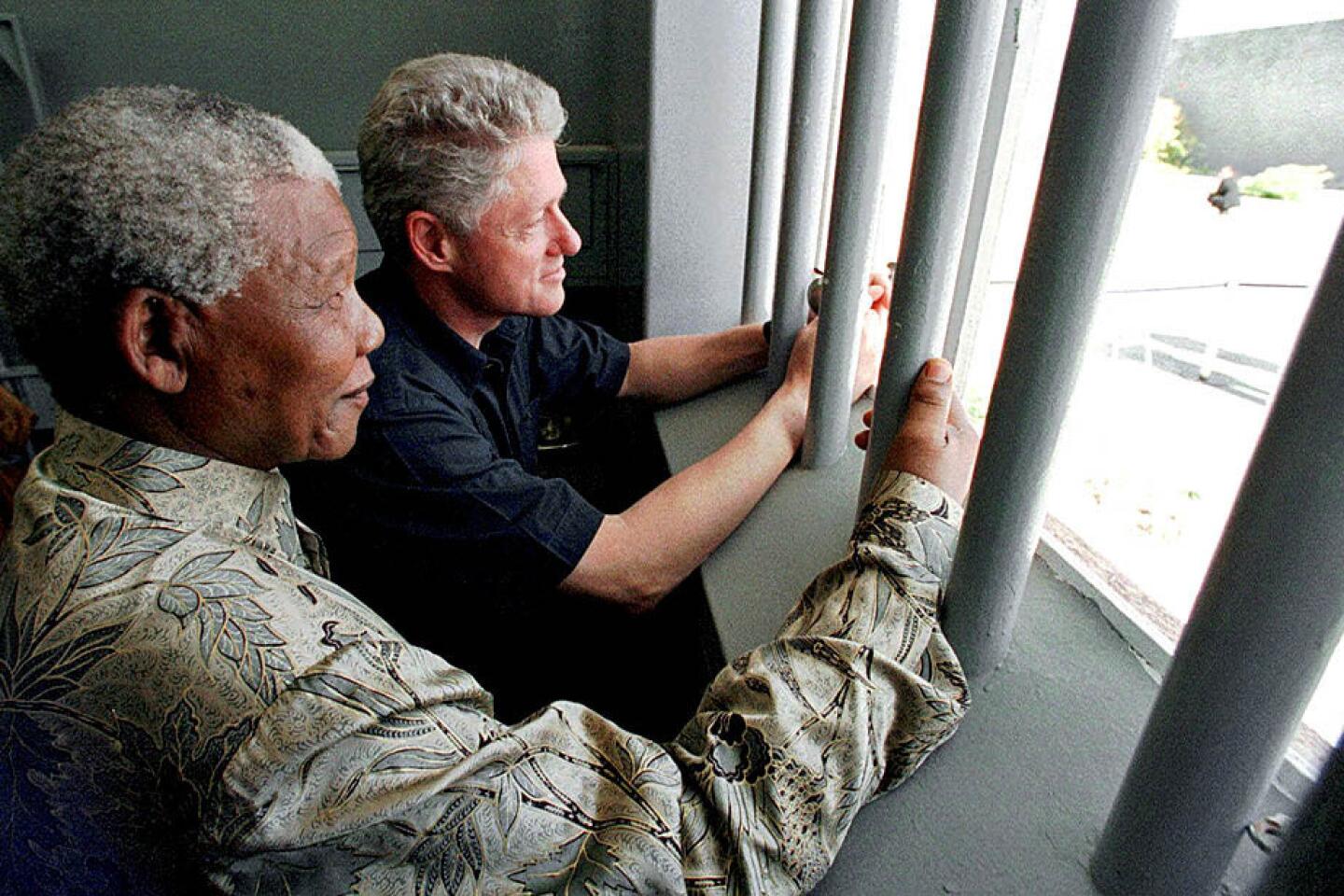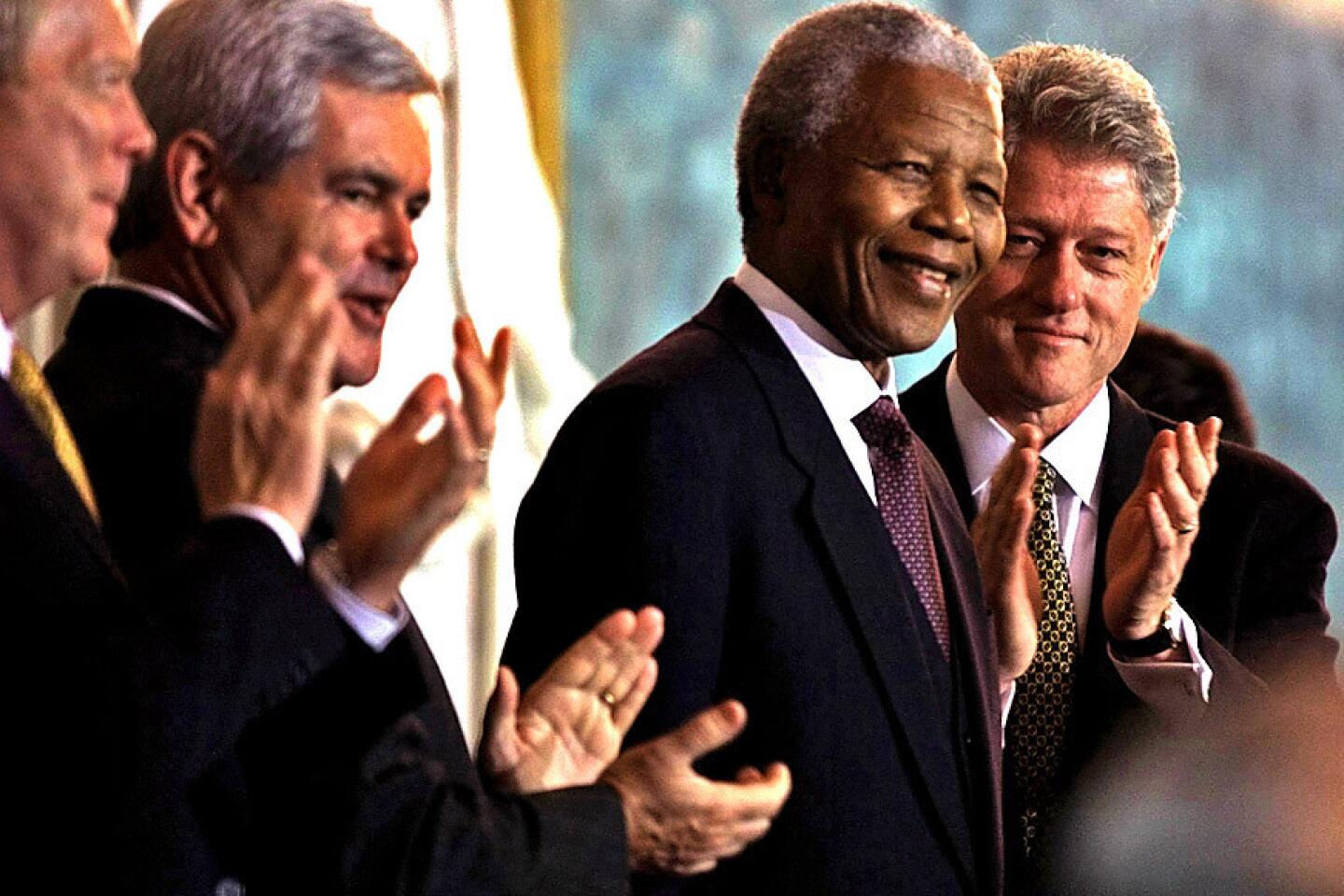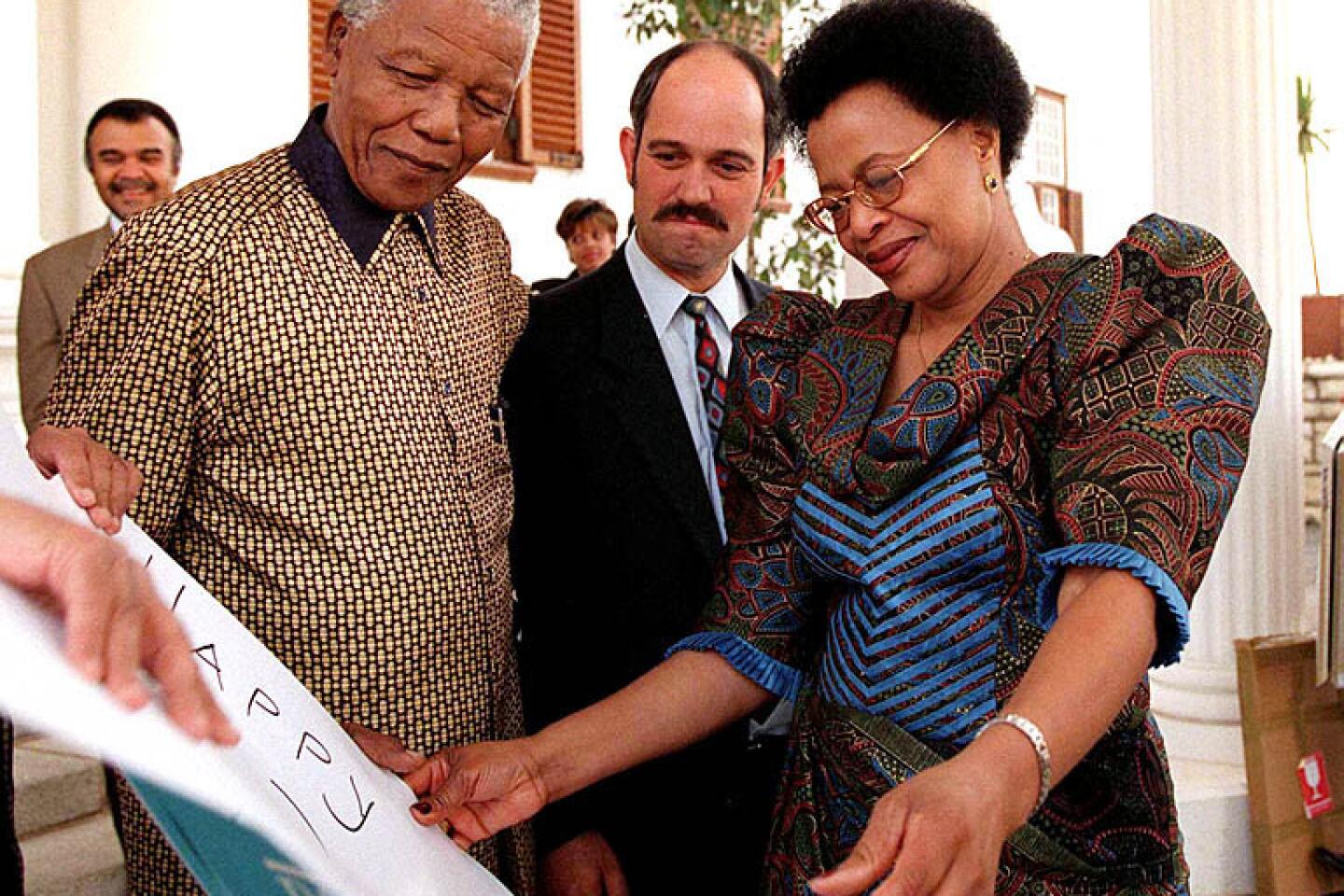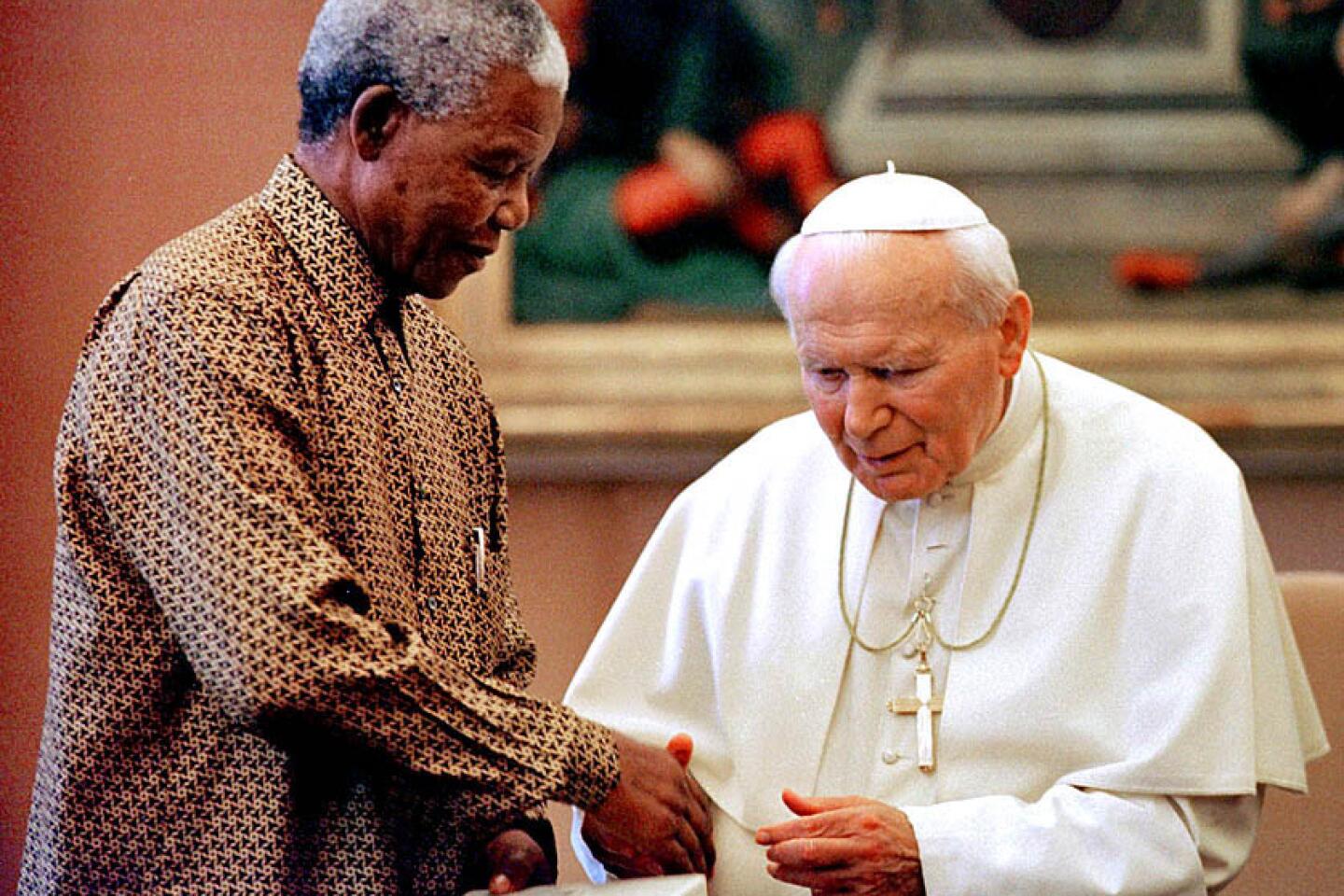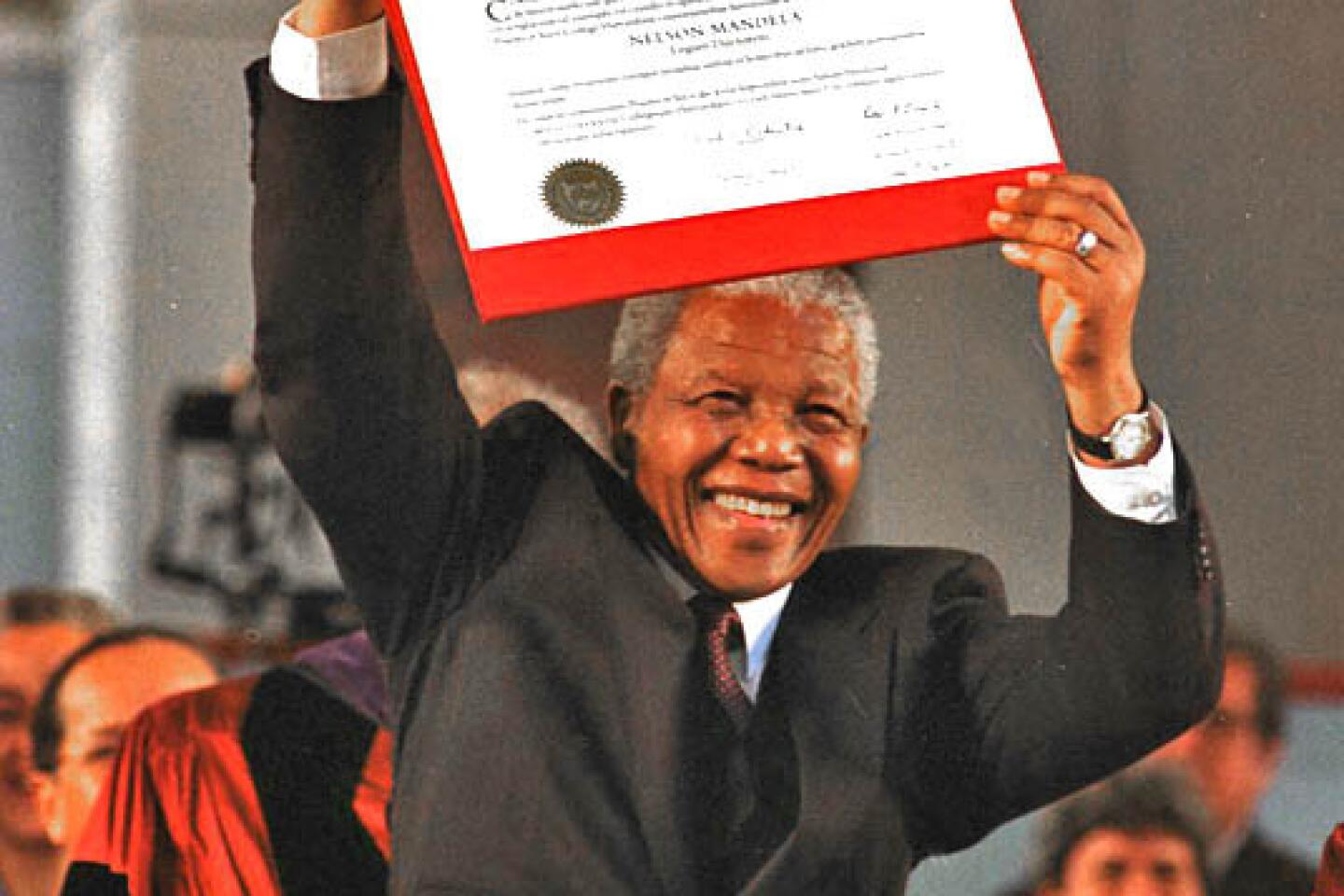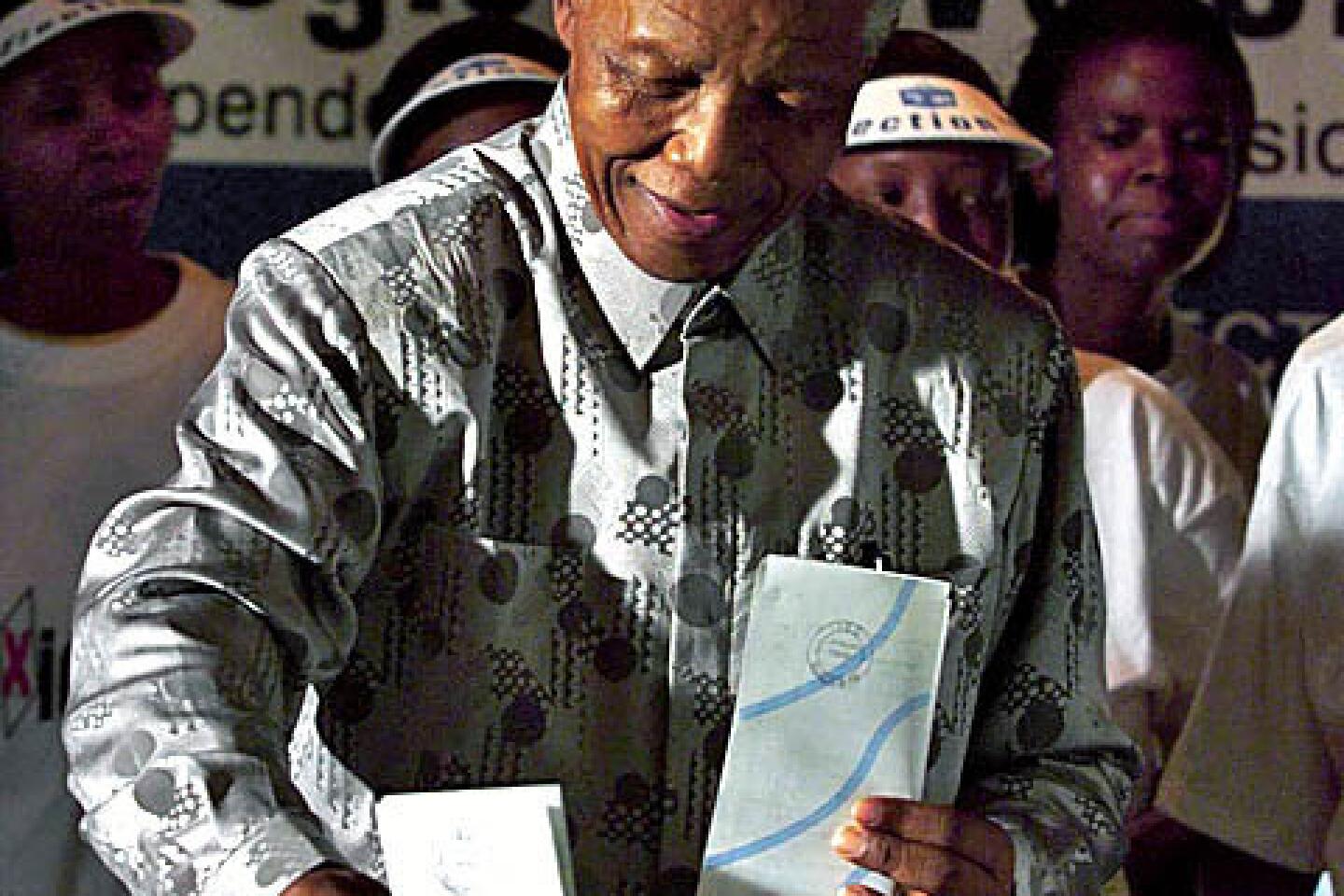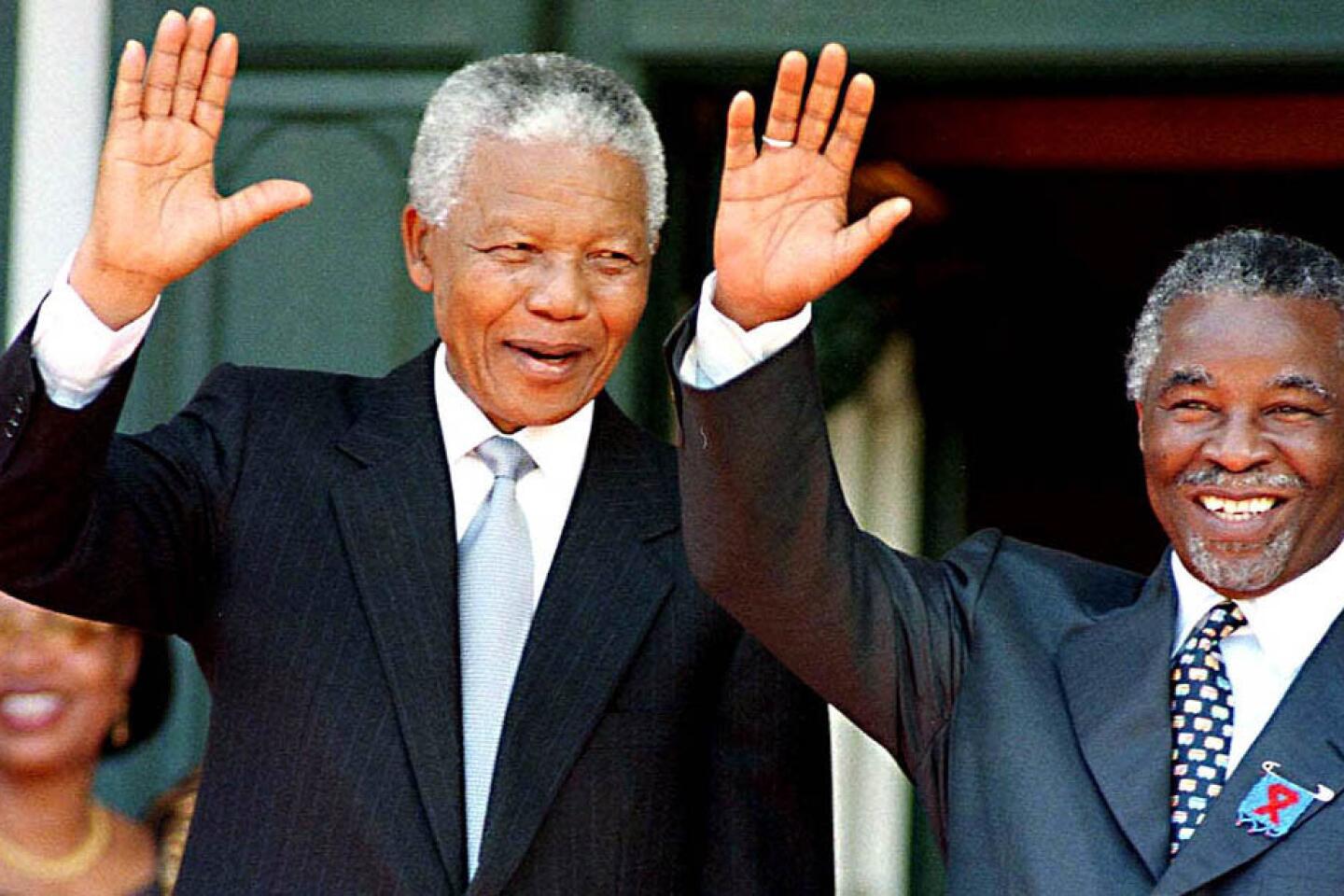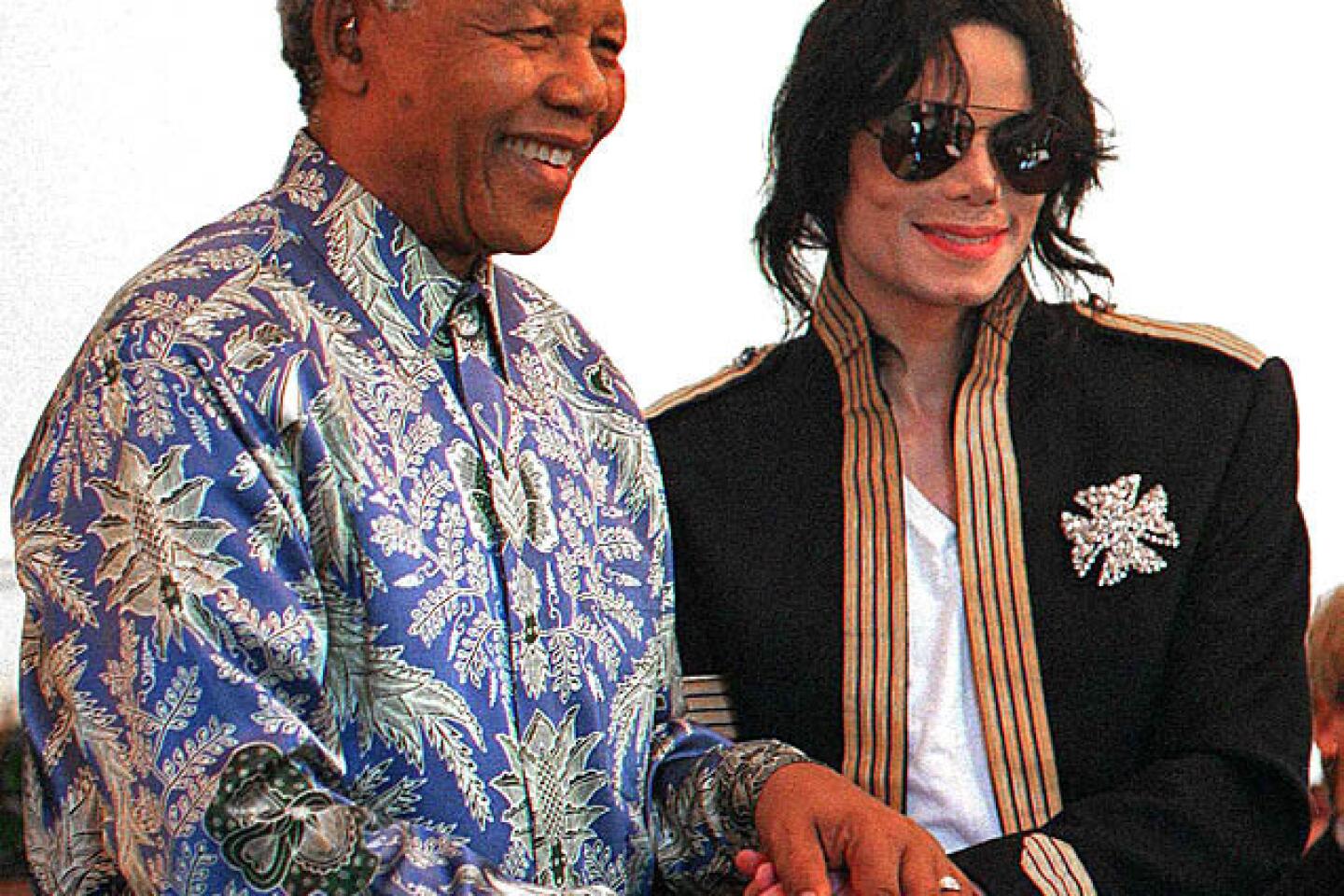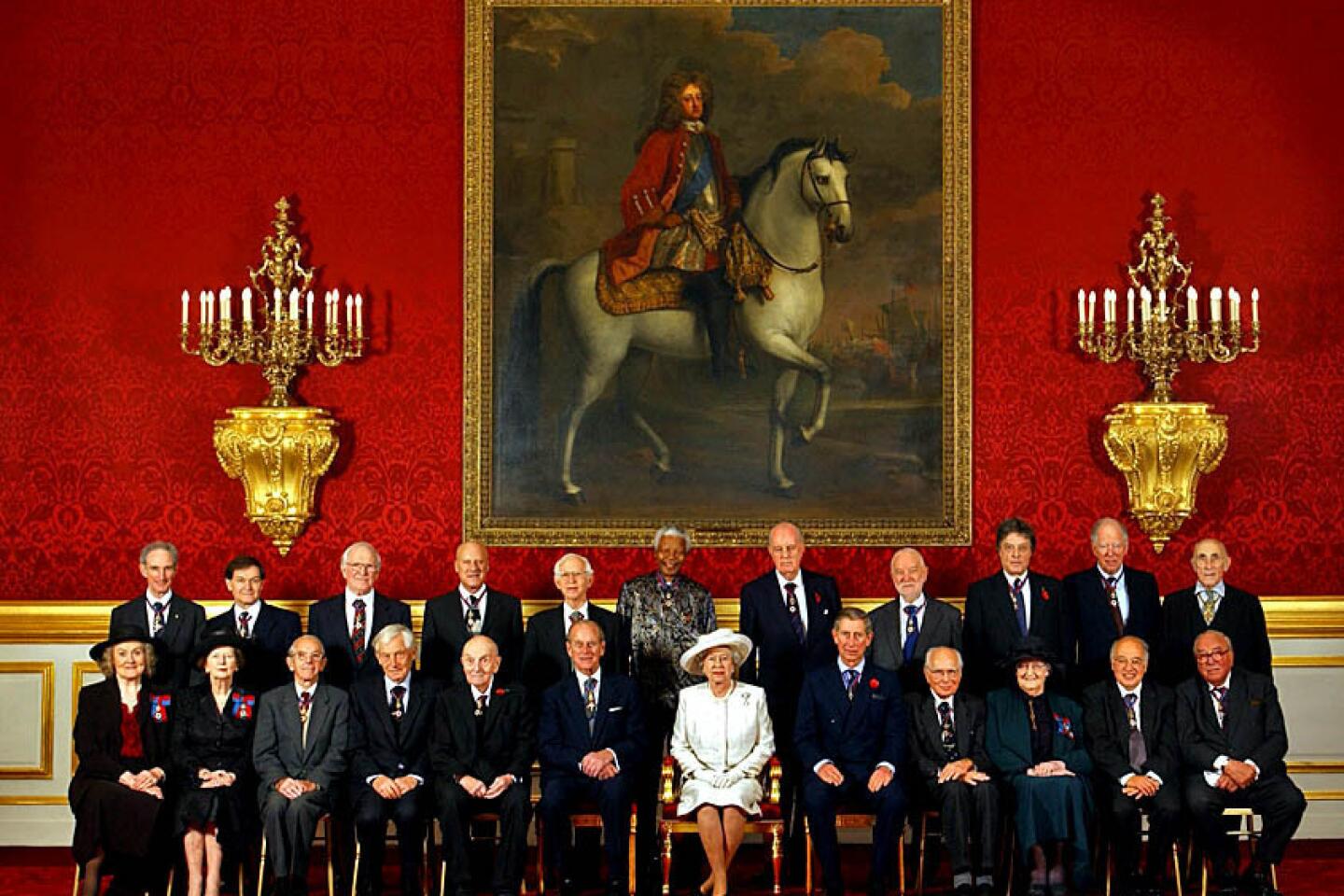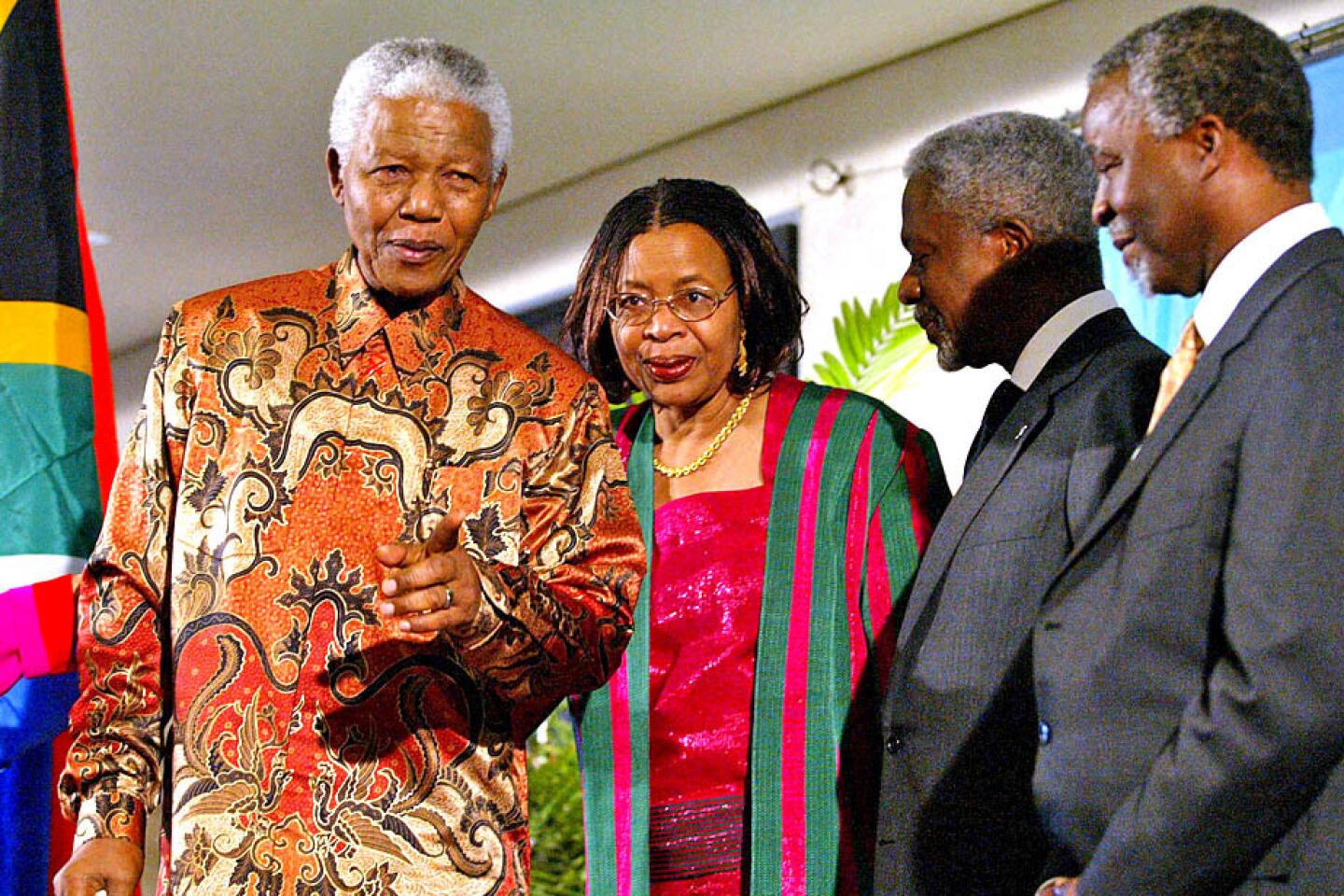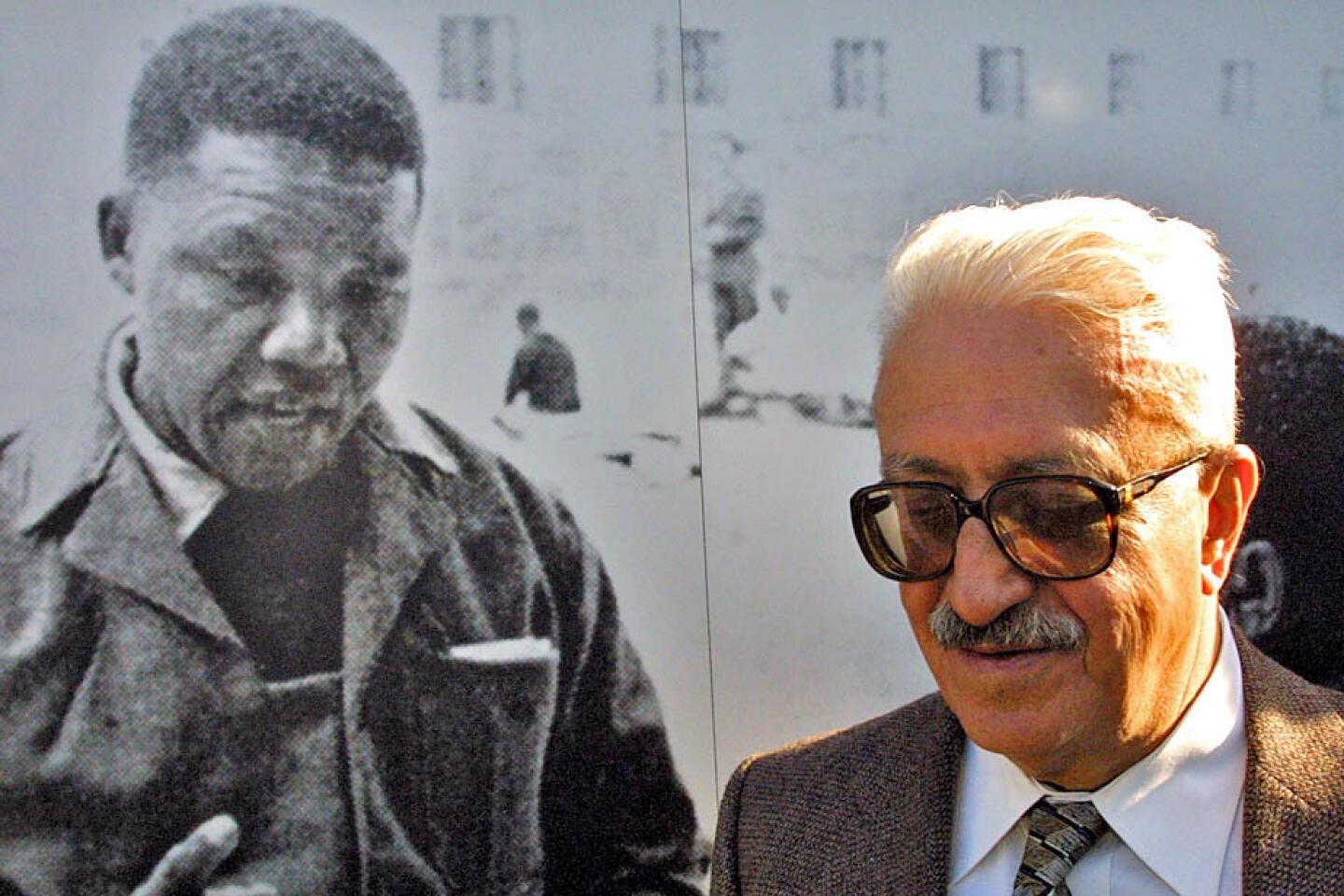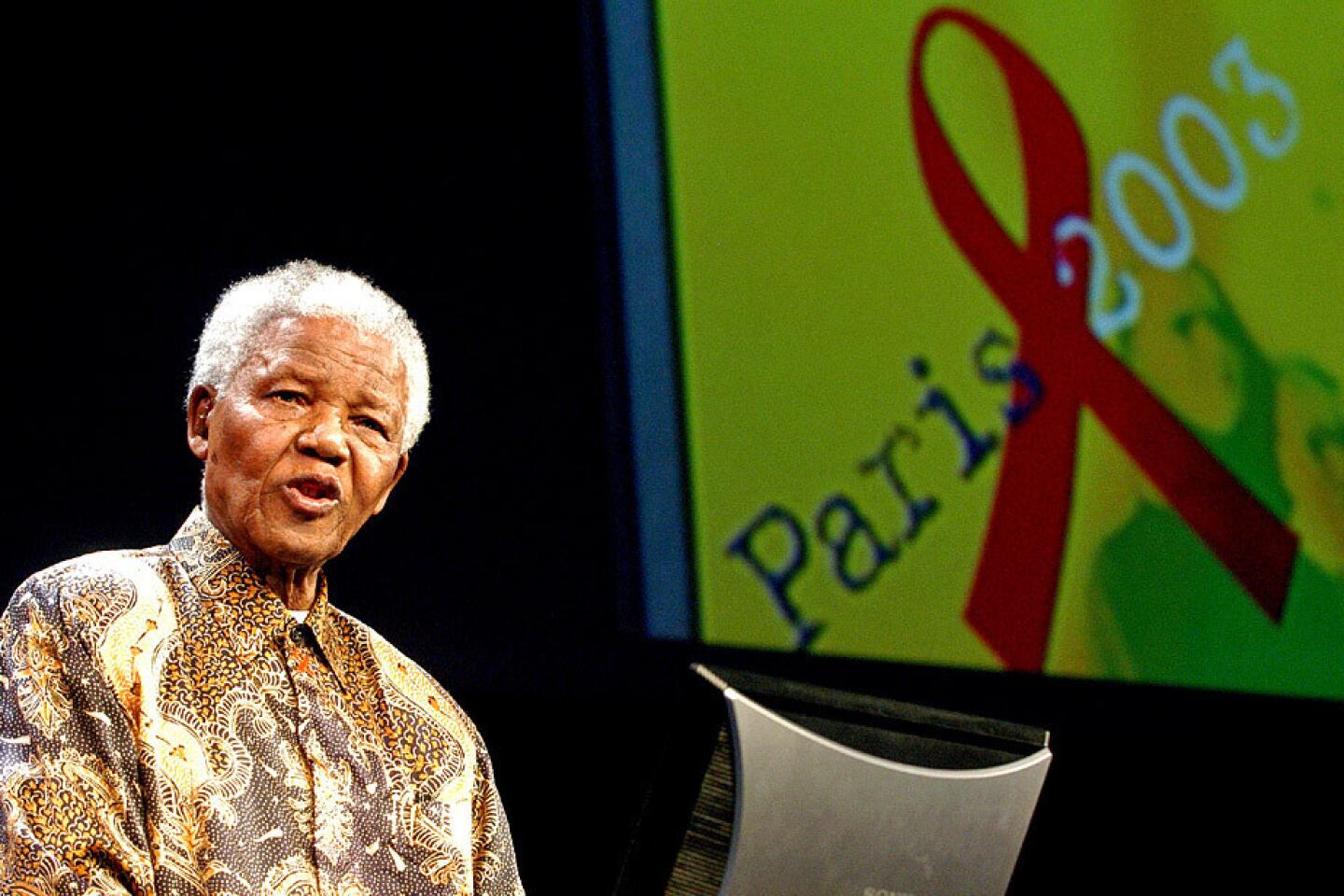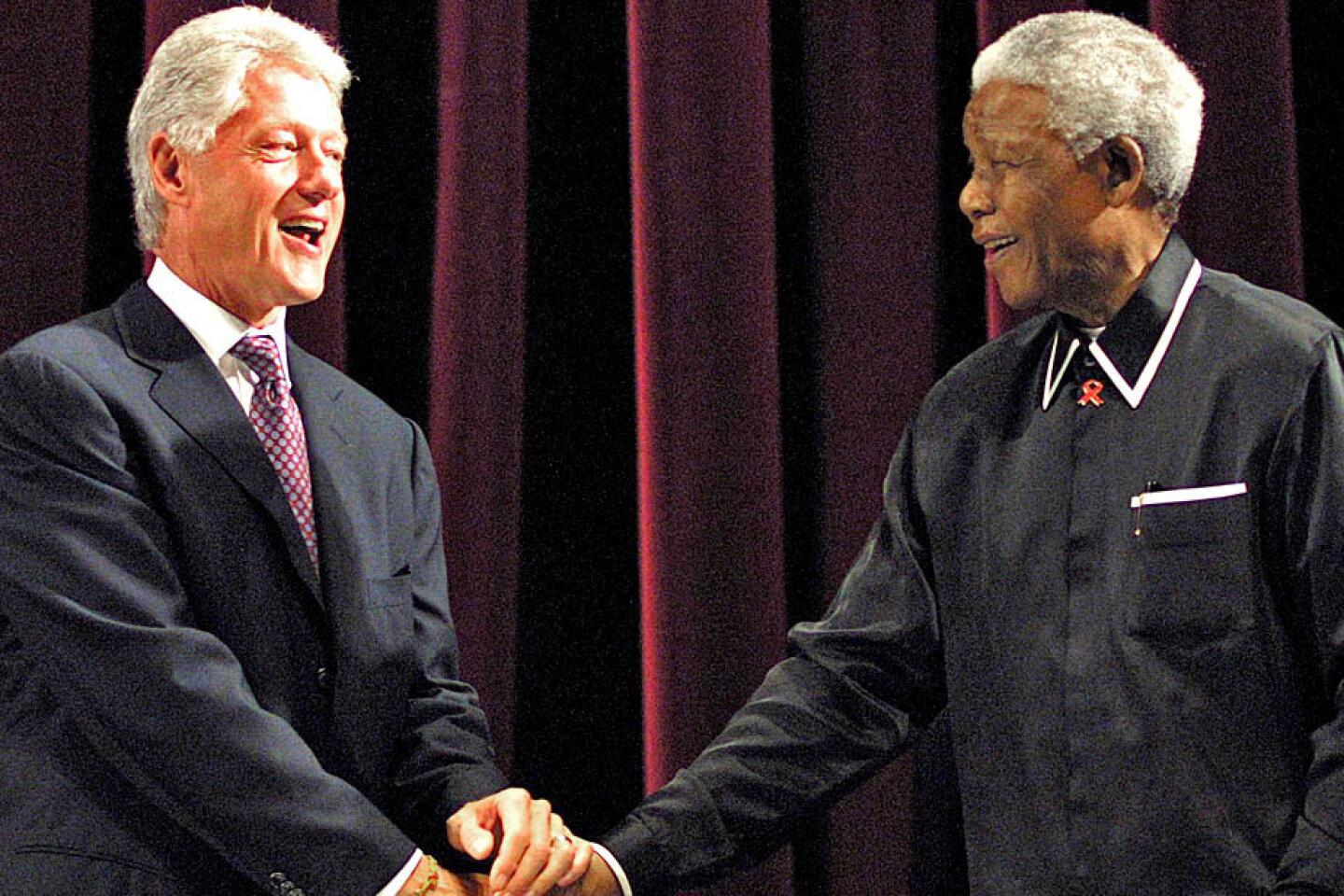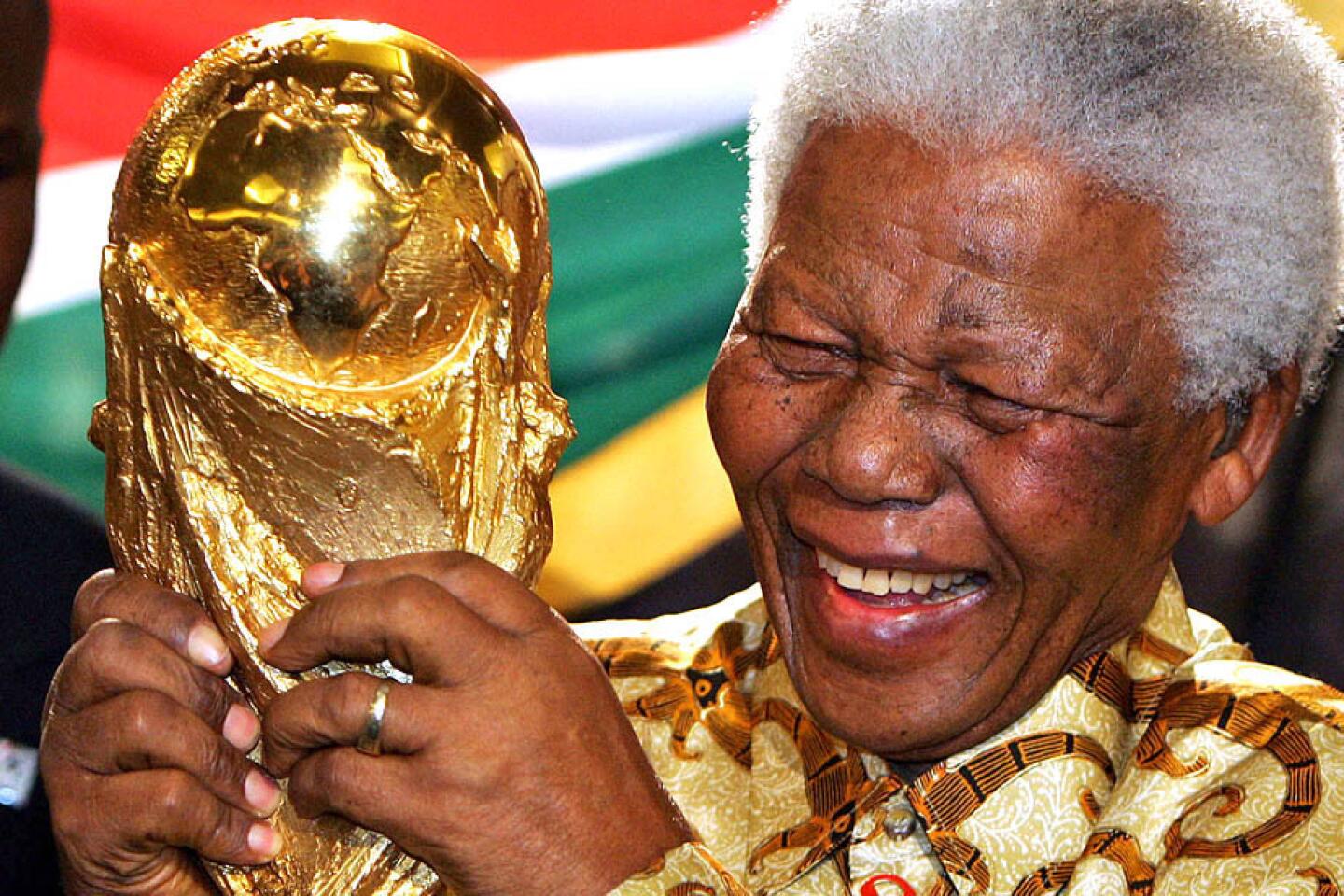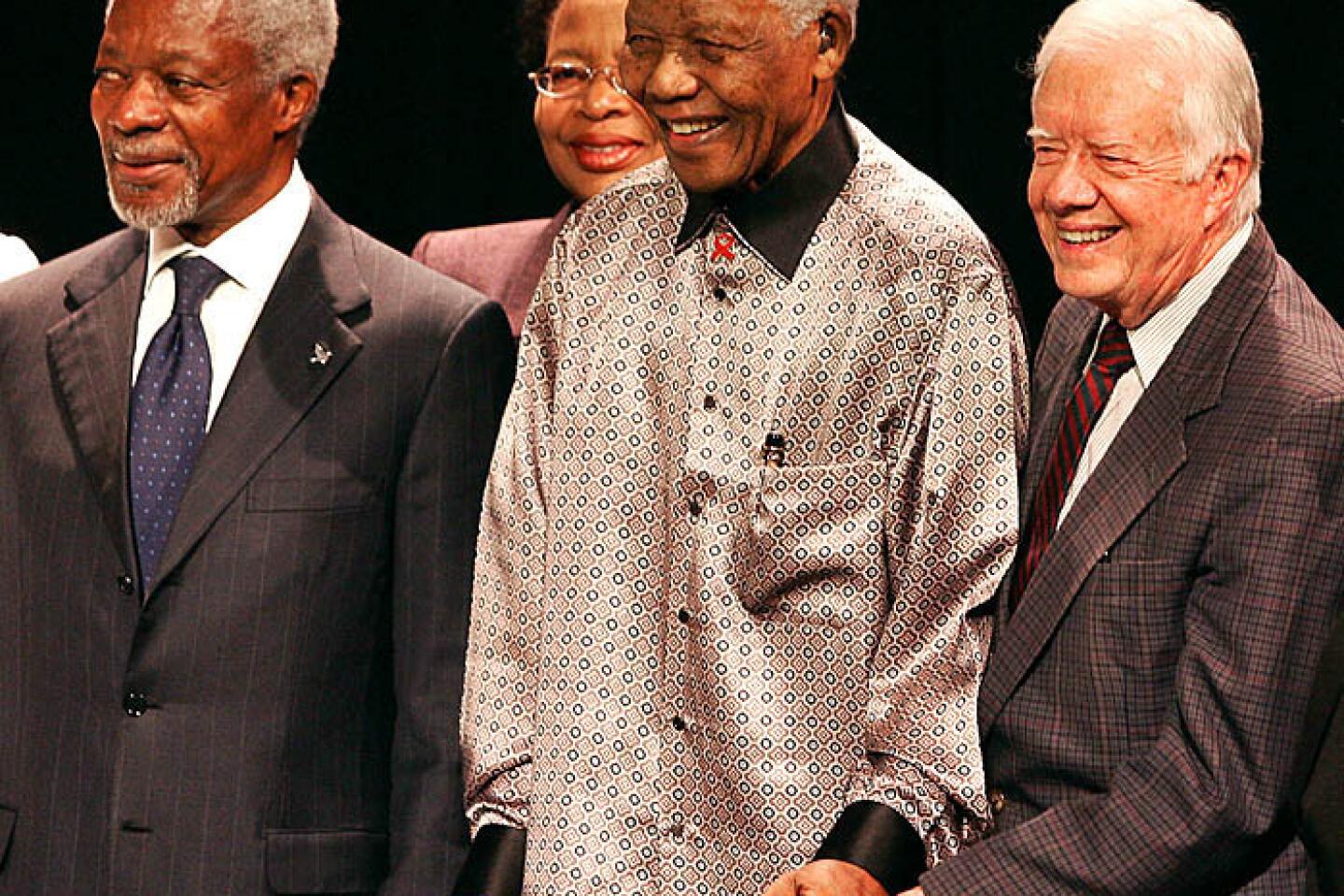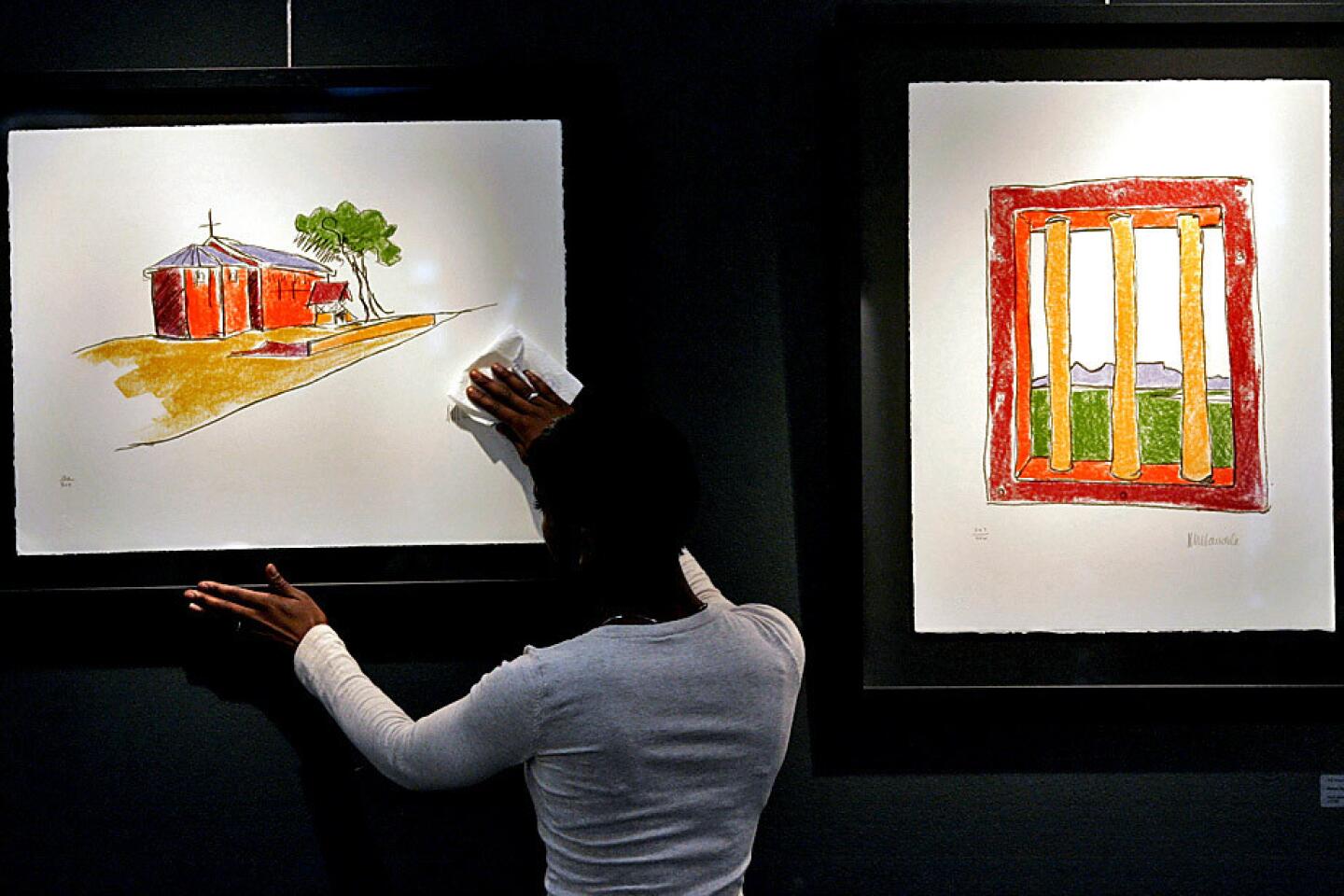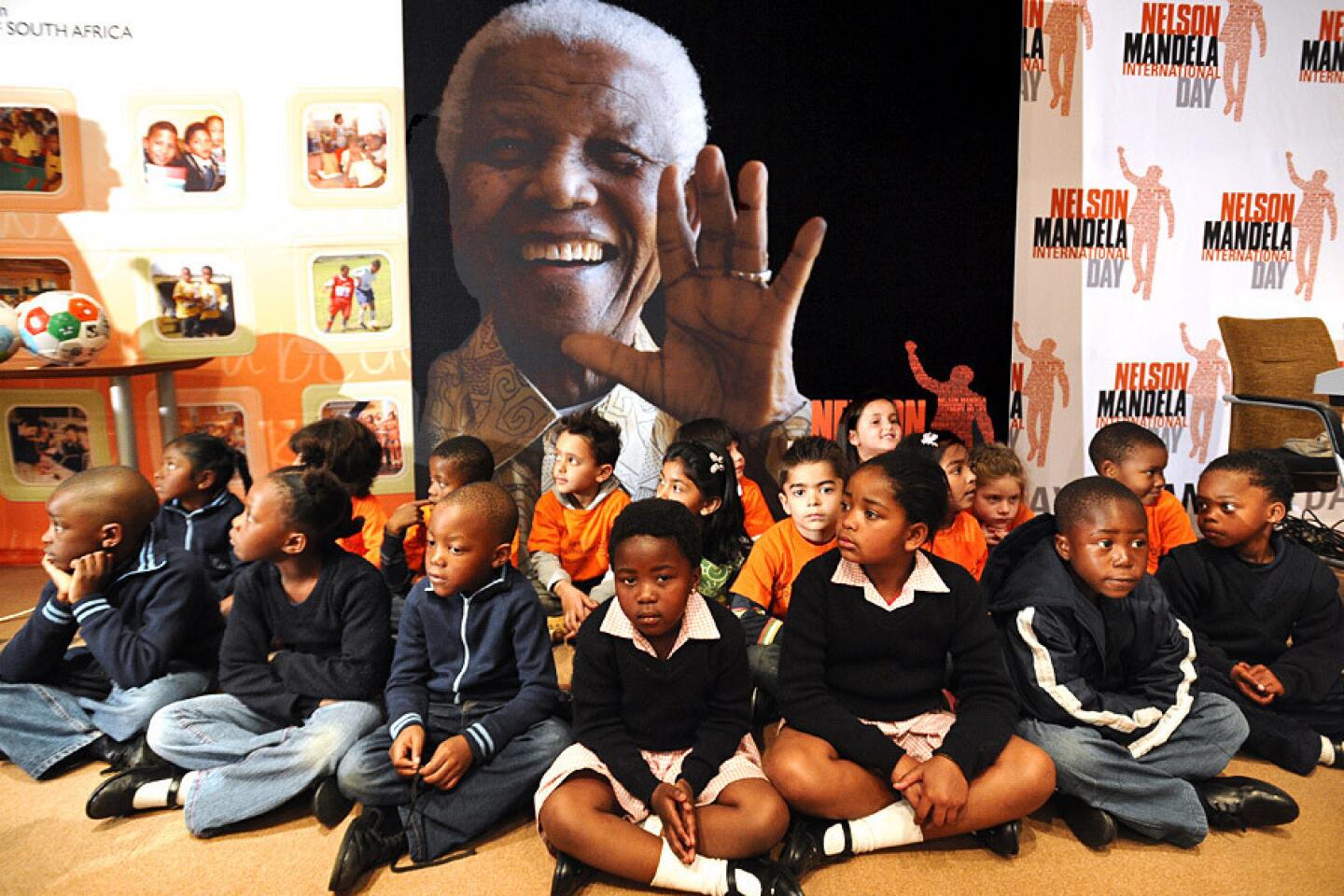At Mandela memorial service, Obama urges world to honor his spirit
JOHANNESBURG, South Africa — In a misty rain that African officials said symbolized the departure of a great leader, mourners wept at South Africa’s state memorial for Nelson Mandela, but also sang, danced and ululated to celebrate the man President Obama eulogized as a giant of history.
Leaders and dignitaries from more than 100 countries attended the service, where Obama invoked Mandela’s spirit in impassioned remarks that urged young Africans and world leaders alike to “search then for his strength, for his largeness of spirit, somewhere inside ourselves.”
Clouds hung low over the soccer stadium in Johannesburg’s Soweto township, but the atmosphere was full of joy, as many in attendance sang old liberation struggle songs extolling Mandela, who died Thursday at 95.
“It was electrifying,” one young mourner, Tumi Simelane, said later. “It was more of a celebration.” She said she attended the service because she wanted to honor Mandela and witness one of South Africa’s momentous events.
“I thought yesterday about Nelson Mandela and I realized it’s actually history being made, and I wanted to be part of this,” she said. “I want to be able to tell my kids that I was there to send a hero back to heaven.”
In South African culture, rain is seen as a blessing symbolizing major events. The deputy president of the ruling African National Congress, Cyril Ramaphosa, opened the memorial, saying that “if it rains when you are buried, it means the gods are welcoming you and the gates of heaven are opening.”
“In many ways we are here to tell Madiba that his long walk is over, that he can finally rest. His long walk is over, but ours is only beginning,” Ramaphosa said, referring to Mandela by his clan name.
Tuesday’s service began with rousing cheers and the words, “Comrades! Long live the spirit of Nelson Mandela! Long live!”
The Mandela family, which has been deeply divided in recent months, looked ashen and strained as they arrived and took their places. Mandela’s widow, Graca Machel, regarded as the peacemaker in the family, embraced his second wife, Winnie Madikizela-Mandela.
When President Jacob Zuma entered the stadium, he drew a hearty cheer from ANC members, but then, little by little, some in the crowd began booing. The boos died down when Zuma addressed the gathering.
The 95,000-seat stadium was far less than full, perhaps because of the rain. Authorities had also urged people from provinces besides Gauteng, which is home to Johannesburg, to stay away, fearing that so many people would turn out that there could be a crush or disorder.
Mandela, the leader of the movement to end South Africa’s brutal apartheid system of racial discrimination and the nation’s first black president, died Thursday night after having contracted severe pneumonia in June, from which he never fully recovered. South African media reported that he came down with a new infection shortly before he died.
The former president, who in the 1960s was sentenced to prison on charges of sabotage and conspiracy to overthrow the government, had battled recurrent lung infections since becoming ill during his 27 years of incarceration, which ended in 1990.
South Africans revere him for the sacrifice of spending nearly three decades in prison and for his triumph in negotiating a peaceful end to apartheid. But to many in the South African ruling party, the tough, uncompromising younger Mandela, who advocated violent struggle to answer the violence of apartheid, is just as important.
“The world is here,” a South African newspaper headline read as leaders jetted in Tuesday from around the globe, a logistical, diplomatic and security nightmare. Obama was caught in morning traffic, arriving after the memorial had begun, and there were complaints that members of the public underwent no security screening as they entered a stadium in which dozens of world leaders were seated.
With some of the world’s autocrats listening, Obama said that too many leaders claimed solidarity with South Africa’s liberation struggle while falling short of the democratic values Mandela espoused.
“There are too many of us who happily embrace Madiba’s legacy of racial reconciliation but passionately resist even modest reforms that would challenge chronic poverty and growing inequality. There are too many leaders who claim solidarity with Madiba’s struggle for freedom but do not tolerate dissent from their own people,” Obama said.
The crowd repeatedly burst into cheers during Obama’s impassioned eulogy, at times almost drowning him out.
Obama compared Mandela, a Nobel Peace Prize recipient, to Abraham Lincoln, Mohandas K. Gandhi and the Rev. Martin Luther King Jr. and to America’s Founding Fathers.
In a week of obituaries that often endowed Mandela — who was president from 1994 to 1999 — with a saintly, iconic status, Obama rejected the view of him as “smiling and serene, detached from the tawdry affairs of lesser men.”
“Madiba himself strongly resisted such a lifeless portrait,” Obama said. “Instead, he insisted on sharing with us his doubts and fears, his miscalculations along with his victories. ‘I’m not a saint,’ he said, ‘unless you think of a saint as a sinner who keeps on trying.’
“It was precisely because he could admit to imperfection — because he could be so full of good humor, even mischief, despite the heavy burdens he carried — that we loved him so. He was not a bust made of marble; he was a man of flesh and blood — a son and husband, a father and a friend.”
After speaking, he approached Mandela’s widow to offer his condolences.
Also at the memorial were former Presidents Jimmy Carter, Bill Clinton and George W. Bush.
In a gesture some took as a symbolic nod to Mandela’s spirit of reconciliation, Obama, while greeting world leaders, shook hands with Cuban President Raul Castro, although the countries have not had diplomatic relations for more than five decades.
United Nations Secretary-General Ban Ki-moon said that although the Soweto stadium held tens of thousands of people, “even an arena as big as Africa could not contain our pain. South Africa has lost a father. The world has lost a beloved friend and mentor.”
“Nelson Mandela was more than one of the greatest leaders of our time. He was one of the greatest teachers,” Ban said.
Among those in the crowd was Tyson Mbanjwa, who said he attended the memorial to bid farewell to a legend.
“He was a very, very good person. We love him and we are going to miss him. He taught us humanity and he taught us to love people and not to commit crimes,” he said.
Johannes Funeko went to the memorial to “bless my father because he worked very hard to get freedom for everyone. It felt right. I feel so good because now I could see that everything went well, everything went right, my father is just sleeping.” South Africans often referred to Mandela as “Tata,” or father.
Mandela died at his Houghton home in his bedroom, which had been set up to provide him with round-the-clock intensive care from a team of more than 20 doctors. With tubes in his throat to drain fluid from his lungs, Mandela was unable to speak in the final months of his life, and family members said he was fragile and prone to infection.
His death resulted in an outpouring of grief from South Africans, with people of all racial groups making pilgrimages to his home, and flowers, cards, letters, gifts and candles piled deeply outside the front wall of his home.
Obama urged people to draw inspiration from Mandela, who struggled for change even when it seemed impossible, comforting himself that he was captain of his own soul.
“What a great soul it was. We will miss him deeply,” he said. “May God bless the memory of Nelson Mandela.”
More to Read
Sign up for Essential California
The most important California stories and recommendations in your inbox every morning.
You may occasionally receive promotional content from the Los Angeles Times.
